- 305
- 495
Introduction
This one's personal.
I remeber when this happened. It's on a personal level for me because Katelyn and I were born the same year, 2004, and I was going through some of the same issues she had around the same time. Struggling with mental illness, abuse, self harm and being hospitalized were issues I had to deal with, and at such a young age. This story absolutely breaks my heart on so many levels. So let's talk about Katelyn.
Katelyn Nichole Davis was born on February 20th, 2004 in Rome, Georgia. Around the time of her suicide, she was living in a trailer with her mom, Tammy, her step-dad Anthony and her 2 younger half siblings.
Livestreams
She was known as "ITZ Dolly" on a platform called Live.me where she recorded multiple hours of live streams of her everyday life where she would sing, take care of her younger siblings, do her makeup, talking to the chat and answering questions they had. During these streams she would sometimes break down and cry and share how her mom was selling drugs and doing pills, and how her step-dad tried to have sex with her. People also often asked her if her siblings were her kids because they were always on her streams.
Katelyn talking about how her step-dad tried to rape her
She says after she denied his advances, he called her a "worthless whore" and that she should hang herself. "He hated my guts but then he still tried to get in my pants" He told her to hang herself because she wasn't worth it.
Katie used vlogging to cope with her mental illness and poor home life. She shares how her home is practically unlivable, a piece of her wall is gone, she has no door and there is a hole in her floor leading outside. She wrote in "Diary of a Broken Doll" that one time a bird flew into her room through the hole, and how its extremely cold during the winter. She was worried about getting sick from the leaky pipe completely soaking her floor because "cold + wet = sickness". Her shoes would often break and fall apart from the floor being wet so she only had one good pair of shoes.
[lv_0_20240419215625.mp4]
Another thing she wrote was that her bed wasnt even a bed, it's an old rusty mattress on the wet floor.
Sometimes she would have Hundreds of people watching her streams, so they were all seeing this. They were all witnessing her living conditions and hearing all of these terrible things from Katie, so you think they would be worried enough to take action right? Most of her viewers were much older than her and they would ask her creepy things like if she lives alone. She once said "I'm not doing that! Im not taking my shirt off." And "yes I'm wearing stuff under my pajamas." Like who in their right mind is saying these things to someone who is so young. And it's not like theh didnt know, Katie has said countless times that she is 13. She has reminded viewers this over and over again so they are well aware she's a child even though they are saying these weird things. During all this she just keeps asking herself "why are all these people trying to get with me?"
"Im Thirteen" (she dosent seem super uncomfortable in this case, but in others she is)
Although, she did enjoy being complemented like in the video above because she was "used to being insulted" (being called pretty and told she is nice)
One time during a stream joking around with her little brother someone said "perv and proud" to which she replied "What? You're being a perv?? Thats my little brother! He's 4! Im 13!" Then she blocked and reported the person and began expressing how that is not okay. She also said the person was trying to get her and her little brother to touch inappropriately.
She was also a victim of catfishing, a girl named Alexa was pretending to be a boy named Ben and tricked Katie for months which affected her greatly.
She did end up dating a boy named Luke who was 19. Luke is a weirdo, in a stream talking about Katie after her death someone asks him how old he is to which he replies that he doesn't give out his age. Dude is clearly an adult you ain't fooling nobody
Katie talking about Luke
Bullying
Katie talking about how she gets bullied and how Anthony told her he would go buy the rope for her to hang herself
[lv_0_20240419210641.mp4]
People would call her Ugly, an Emo freak, a monster, and one boy called her a lonely demon girl in front of the whole class while passing out papers.
Katelyn's dad
[lv_0_20240419210400.mp4]
When Katie talks about her dad, she describes him as wanting nothing to do with her, and even saying she doesn't have a dad. When she tried to see him he was uninterested, even though he only lived 2 miles away from her he still did not come see her. And when she was in the hospital after trying to commit suicide with pills, her never visited her or cared to see how she was doing. In one stream, she said the last time she saw her dad was in the store and when she tried to hug him, he walked away from her.
Katelyn's mom
Let's talk about Tammy for a moment, a neglectful, abusive, drug addict of a mother. Katie talks about her mom in a stream and explains how she mostly deals drugs, but she used to eat pills but now she crushes them up and snorts them right in front of her
Katelyn talking about how her mom sells and does drugs, and how she leaves Katie with her 2 younger siblings for hours at a time
Katelyn says if she asked her mom where she was going, she would just say she was going up the road but then would not come back home for a while.
In one stream, just the day before she committed suicide, the two have a heated argument.
Tammy is yelling at Katie to come out here, when Katie says she's getting dressed her mother continues to yell at her saying she doesn't care, and "get out here before I beat your ass" Katie has her phone hidden behind the curtain before she goes out. Tammy is complaining about the kids making a mess or whatever, Katie says that it is not her fault that they won't listen to her, and that she keeps leaving her to take care of them. Tammy said she told her to whip the children if they don't listen, which Katie replied that she can't because when she does they still don't listen. Lots of things were said back and forth, Tammy kept saying she was gonna whip her ass and that she needs to go back to the hospital. Katie brings up everything How Tammy did not get rid of Anthony as soon as the abuse happened, how shes snorting pills, bringing guys home and kissing up on them, how she's expected to do so many things and the pressure is just getting too much for her. You can hear the pain in her voice as Tammy continuously brushes her off and just won't listen "she didn't take her pill today" and "its none of your business what I do." She makes excuses for just about everything Katelyn says "I'm just trying to make money" when she brings up the selling drugs and "is he here now? No he's not still here" to the Anthony thing even though Katie's whole point was that she didn't make him leave immediately.
I can only imaging the frustration Katie was feeling during this, she had nobody except the people watching her streams. And if this was the way her mother was treating these issues then she must've felt extremely invalidated. She had no support other than her viewer's.
December 30th, 2016
The following video is the last stream Katie made before the one where she died
On the evening of December 30th 2016, Katelyn started a live stream on Live.me, it starts off with her walking outside, looking at thd camera with a blank stare as she walks toward the tree in her backyard. She has her hair and makeup done. She puts down the phone and spends about 15 minutes tying the rope to the tree.
Once she's done, at 16:56 she picks up her phone again and apologizes, saying she's sorry she's not pretty enough, she's sorry to the people who watched her streams, and she's sorry she wasn't strong enough. She cries and repeatedly apologizes over and over again. She puts the phone back down and steps up, putting the rope around her neck and continues to apologize. She says sorry to Luke, Sorry to Ben, to God, to everyone as she continues to cry. You can hear her breathing very heavily as the reality began to sit in. The first time she says goodbye, the rope begins to choke her a bit. she's scared, hesitant. She apologizes again, says bye, and kicks away whatever she was standing on. The sun is setting, as it gets darker and darker you can eventually only see a silhouette of her swaying. Before it gets too dark, you can see her clenching her fists and shaking as she spins for a bit (2 common effects while hanging) although there isn't too much flailing like you see in other videos.
Around the 30 minute point, Katie's phone begins to ring and go off multiple times. Towards the end of the video, you can hear her mother calling out to her from the house. Then the stream ends.
Circulation of the video brought media outrage. Why did it take so long for the video to be removed? Why can't the police force sites to take it down? All of these missing the point completely. They were more worried about how she died rather than what caused her to take her own life. Investigations were done on the family but nothing came of it. Other parts of the media were supportive and worried about youth depression and suicide.
Conclusion
Katie would've been 20 last month, its been 8 years since she committed suicide. Whenever I feel suicidal, I think of Katie. I think of how suicide is a permanent solution to a temporary problem. Things can and will get better, you just need to try to believe that they can. It breaks my heart to think about how she was so young, only 12. There's no reason a 12 year old should've been taking care of little kids for extended periods of time, there's no reason she should've been held up to such expectations. 12 year olds are meant to be playing outside, participating in sports, hanging out with friends etc. They failed Katie, she needed help and nobody gave it to her. No child deserves to be bullied or treated the way she was treated. She deserved a normal childhood. Rest in peace Katie.
If you or a friend are struggling with suicidal thoughts and feel you may be in danger of hurting yourself, I highly recommend calling 988 or visiting the site. Find a trusted person to talk to, it gets better.
Thank you for taking the time to read this, it means a lot to me.
Sources
https://gone-too-soon.fandom.com/wiki/Katelyn_Davis
https://fr-ca.findagrave.com/memorial/175493179/katelyn_nicole-davis
Most of the sites I came across were completely useless, I had to base a lot off of Katelyn's streams alone.
- 21
- 54
This is the apparent suicide of a female person, who from a balcony of the Tintoretto building, located on Carrera 96b No. 18-30, Villemar sector, can see how the person makes the fatal decision.
At the time of the event, entities such as the Bogotá Official Fire Department and the National Police were present, who immediately attended to the person who fell from the seventh floor.
The reasons that led the person to make the fatal decision are unknown.
Enjoy ✨️
By MsShadowist 🤌❤️
- 92
- 186
Moscow region: a girl climbed a pole and committed suicide after her brother told her parents that she was a drug addict.
All the persuasion from emergency services and eyewitnesses to come down had no effect. Zina took off her shoes, blindfolded her eyes with a red scarf, and fell down. The doctors were unable to save the unfortunate woman - her head was severely damaged from the blow.
According to local residents, the deceased had previously served time for theft.
- harassment : EFFORT *Smashes hand down on desk* FUCKING POST
- Pizza-lover : I agree with the person above
- IndianTrainLover : Effortpost. This is just dedication to one topic
- KurtCovain : EFFORTPOST!!!! NOW I MEAN NOW!!!!W
- TheFisherman : Effort post, but don't give it to him because he whined in the reports.
- 27
- 71
Video:
First Angle:
Second Angle:
Third Angle:
Fourth Angle:
Fifth Angle:
Mixed:
Before Photos:
Incident Photos:
Bullet Hole:
“A mark was left on the wall by a bullet that killed former state Treasurer R. Budd Dwyer in his public suicide in 1987. The patched-up hole had been hidden by a framed photograph unbeknownst to the current office staff.”
News Reports:
His Grave:
Explanation:
Born in 1939 in Missouri, Dwyer graduated from Allegheny College and worked as a teacher before being elected as a Republican to the Pennsylvania house of representatives in 1965. He served there until 1970, when he moved over to the state senate, and continued in that capacity until he was elected state treasurer in 1980. In 1983, after the opportunity came about for state and local governments to recover overpayments made to the federal government under the Federal Insurance Contributions Act, the California-based company Computer Technology Associates sought a contract for recovery work in Pennsylvania. Governor Dick Thornburgh, also a Republican, signed a bill authorizing Dwyer to handle the FICA recoveries, but objected after shady dealings involving the treasurer and CTA came to light. Dwyer came under investigation for awarding a $4.6 million contract to the company without putting it out to bid. He was accused of receiving a $300,000 kickback in the decision, though he canceled the contract after learning of the investigation. In 1986, Dwyer and Robert Asher, the state Republican chairman who was accused of diverting the kickback funds to the party, were indicted on charges of bribery conspiracy, mail fraud, and racketeering. Dwyer maintained his innocence throughout the affair, but convictions of other officials related to the scandal soon began to pile up. William T. Smith, GOP chair of Dauphin County, was sentenced to 12 years in prison after turning in evidence against Dwyer; John Torquato, Jr., head of CTA, was sentenced to serve four years. In December 1986, both Dwyer and Asher were found guilty of the charges against them and faced up to 55 years in prison. Dwyer had been offered a plea bargain that would allow him to plead to one count and face a maximum of five years, but he rejected it. He also unsuccessfully sought a pardon from President Ronald Reagan. Following the conviction, Dwyer was allowed to remain as treasurer but, at the same time, ordered by the judge to refrain from taking part in matters related to the treasury. Scheduled to be sentenced on January 23, 1987, Dwyer spent much of his time writing. He asked his son to transfer to a college that was closer to home.
One day prior to his sentencing, Dwyer called a press conference in his office, where the assembled media assumed he would announce his resignation. Instead, Dwyer read nervously through a half-hour statement professing his innocence. He denounced the judge in the case as handing out "medieval" sentences and accused Thornburgh, recently out of office, as starting the investigation because Dwyer had exposed supposed travel abuses in the Governor's office (in his autobiography, Thornburgh denounces the accusation and others made by Dwyer as attempts to "enhance his own image by embarrassing me and my family"). He apologized for voting for the death penalty as a state legislator. Noticing at one point that some television crews were packing up their cameras, Dwyer urged them to stay, saying, "We're not finished yet." After wrapping up his speech, Dwyer gave three envelopes to his aides. Then, reaching into a manila envelope that he had placed behind his lectern, he pulled out a .357 Magnum handgun. Some of the aides or reporters in attendance evidently tried to approach him, as Dwyer spent the next several seconds warning people off. His last words were, "This will hurt someone." He then put the gun in his mouth and fired. It later became clear that Dwyer's suicide had been planned well in advance. He had purchased the gun the month before, after his conviction. The envelopes he had given to his aides included arrangements for a funeral, his organ donor card (his retinas were later preserved), and a letter to newly elected Democratic Governor Bob Casey, who had been in office for two days. In that letter, he said that "the 'justice' system did not function properly in my case" and suggested appointing his wife, Joanne, as interim treasurer. "I stress to you that I did not resign but was State Treasurer to the end," Dwyer added. Several other letters went out to friends and colleagues, including numerous state treasurers. The letters criticized the justice system, saying plea bargains had been granted to people in the scandal in exchange for implicating him. Dwyer widowed his wife and left behind two children. His family and friends, including the minister at his funeral, also maintained that Dwyer had been innocent of the charges against him. Three weeks later, the state legislature approved G. Davis Greene, Jr., a Democrat who said he did not intend to run for re-election to the post in 1988, as interim treasurer. Two months after his suicide, the National Association of State Treasurers demanded that the proceedings against Dwyer be analyzed, but an investigation by the U.S. Justice Department found no wrongdoing.
Television crews at the scene captured Dwyer's suicide on camera, and the tape was shown unedited on some local stations. This, combined with his unconventional exit from office, inspired a variety of cultural tributes both crass and well-meaning. The footage has appeared on several collections of disturbing videos as well as Bowling For Columbine, a documentary that addresses gun violence in the United States. Kurt Cobain, lead singer for the band Nirvana, is said to have obsessively watched a video of Dwyer's suicide in the years before he took his own life. Another rock band, Filter, released a song inspired by Dwyer entitled "Hey Man, Nice Shot." Despite a protest from Dwyer's widow and the seemingly mocking title, the song's composer said it was intended as a tribute (indeed, it contains such sympathetic lyrics as "You'd fight and you were right, but they were just too strong / They'd stick it in your face and let you smell what they consider wrong"). Perhaps most tragically, Dwyer may have thought he had much more to lose than he really did. His co-defendant, Robert Asher, was sentenced to serve only one year and one day and pay a $205,000 fine. Asher has since returned to politics and currently serves as a national committeeman for the Pennsylvania Republican Party. In the waning days of President George W. Bush's administration, columnist Jeffrey Lord suggested that a pardon for Dwyer was appropriate. Columnist Paul Carpenter disagreed, saying such an action would pave the way for someone to suggest that Asher be pardoned for his past criminal actions as well. His sons reaction was “You see anyone die, especially your father, in such dramatic fashion… I don't even know how to describe it.” Robert Dwyer Jr was driving home from a class at Penn State University when he heard on the radio that his politician father had been shot at a televised press conference. He didn't know if his father was dead or alive, if he'd been attacked or had shot himself. It was 11am EST on January 22, 1987 when Budd Dwyer, hosting a meeting for the media where he had been expected to resign, gave a rambling speech, took out a Smith and Wesson .357 revolver, put it in his mouth and pulled the trigger. There was chaos: people ran for their lives; those who stayed had pleaded with him to put the gun down, others had tried to snatch it from his hand. His final words were: ‘Don't, don't, don't, this will hurt someone'. ‘I'd tell anyone thinking about suicide that the scars and the emotional toll that it leaves on those left behind is immense,' he said. Robert Dwyer Jr was driving home from a class at Penn State University when he heard on the radio that his politician father had been shot at a televised press conference. He didn't know if his father was dead or alive, if he'd been attacked or had shot himself. It was 11am EST on January 22, 1987 when Budd Dwyer, hosting a meeting for the media where he had been expected to resign, gave a rambling speech, took out a Smith and Wesson .357 revolver, put it in his mouth and pulled the trigger.
Wikipedia Transcript:
https://en.wikipedia.org/wiki/R._Budd_Dwyer
Robert Budd Dwyer (November 21, 1939 – January 22, 1987) was an American politician. He served from 1965 to 1971 as a Republican member of the Pennsylvania House of Representatives and from 1971 to 1981 as a member of the Pennsylvania State Senate representing the state's 50th district. Dwyer then served as the 70th state treasurer of Pennsylvania from January 20, 1981, until January 22, 1987, when he killed himself during a live press conference. During the early 1980s, Pennsylvania discovered that its state workers had overpaid federal taxes due to errors in state withholding before Dwyer's administration. A multimillion-dollar recovery contract was required to determine the compensation to be given to each employee. In 1986, Dwyer was convicted of accepting a bribe from Computer Technology Associates, a California-based company, to award them the contract. He was found guilty on 11 counts of conspiracy, mail fraud, perjury, and interstate transportation in aid of racketeering, and was scheduled to be sentenced on January 23, 1987. On January 22, Dwyer arranged a news conference in the Pennsylvania State Capitol Building in Harrisburg, during which he fatally shot himself with a .357 Magnum revolver in the presence of reporters. Dwyer's suicide was live broadcast to many television viewers in Pennsylvania. All posthumous appeals made by Dwyer's lawyers on Dwyer's behalf were denied, and his convictions were sustained. Along with Barbara Hafer and Rob McCord, Dwyer is one of three former Pennsylvania State treasurers to be convicted of corruption since the 1980s.
Early life and education
Dwyer was born on November 21, 1939, in St. Charles, Missouri. He graduated in 1961 with an A.B. in Political Science and Accounting from Allegheny College in Meadville, Pennsylvania, where he was a member of the Beta Chi chapter of Theta Chi Fraternity. After earning a master's degree in education in 1963, he taught social studies and coached football at Cambridge Springs High School.
Career
Pennsylvania Assembly
A Republican, Dwyer became active in politics. He was elected to the Pennsylvania House of Representatives from the 6th district (although seats were apportioned by county before 1969) in 1964 and was reelected in 1966 and 1968. In 1970, while still a State Representative, Dwyer campaigned to become a Pennsylvania State Senator for the Senate's 50th district, and won. Soon after his victory he resigned as Representative and was sworn in as Senator in January 1971.
Pennsylvania Treasurer
After being elected two additional terms in 1974 and 1978, Dwyer decided to try for a statewide office and in 1980 campaigned for and won the office of Pennsylvania Treasurer that had been held by Robert E. Casey since 1976. He campaigned for a second and last term in 1984 and won reelection, defeating Democratic nominee and former auditor general Al Benedict.
Bribery investigation and conviction
From 1979 to 1981, before Dwyer was state treasurer, public employees of the Commonwealth of Pennsylvania overpaid millions of dollars in Federal Insurance Contributions Act taxes (FICA). As a result, the state required an accounting company to determine refunds for its employees. Dwyer awarded the no-bid $4.6 million contract to Computer Technology Associates (CTA), a California-based company, owned by John Torquato Jr., a native of Harrisburg, Pennsylvania, on May 10, 1984. During early 1984, Dennis Schatzman, deputy comptroller of Pittsburgh Public Schools, noticed financial discrepancies in the CTA contract, and wrote to Pittsburgh school officials regarding these. Schatzman later contacted officials of the accounting company Arthur Young and Associates, who confirmed that the no-bid CTA contract was overpriced by millions of dollars. In June 1984 the Office of the Pennsylvania Auditor General informed the Federal Bureau of Investigation (FBI) of the alleged bribery that occurred during the awarding of the contract. During late July 1984, Janice R. Kincaid, a former CTA employee, released a sworn statement claiming that Dwyer awarded the contract to CTA because he was promised a $300,000 kickback by the company. Dwyer's awarding of the CTA contract was investigated by federal prosecutors. Upon learning of this investigation, Dwyer rescinded the contract with CTA on July 11, 1984. Subsequently, Dwyer repeatedly attempted to stop, divert and forestall the investigation, stating that the U.S. attorney had neither the authority nor evidence to pursue prosecution. Dwyer later admitted to telling his staff to withhold request for proposal (RFP) information from the U.S. attorney and the FBI during the investigation. After being indicted by a federal grand jury, Dwyer was finally charged with agreeing to receive a kickback of $300,000 in return for awarding CTA the contract. Dwyer stated that he offered to take a polygraph test but only on the condition that if he passed it, he would not be indicted. The state rejected Dwyer's offer. Prior to Dwyer's indictment, on October 22, 1984, a grand jury indicted Torquato, Torquato's attorney William T. Smith, Judy Smith, Alan R. Stoneman, and David Herbert. At Smith's 1985 trial, Smith, who was a friend of Dwyer's, testified that he did not bribe Dwyer, and instead that Torquato offered Dwyer a campaign contribution in return for the CTA contract, yet Dwyer rejected Torquato's offer. In contrast, Torquato testified that Smith offered Dwyer a $300,000 bribe in return for the CTA contract. Dwyer, acting as a defense witness for Smith at Smith's trial, denied that he was offered any contribution at all. In August 1984, Smith failed a polygraph test when he stated that he did not bribe Dwyer or any state official. However, prior to Smith's trial, on October 27, 1984 (four days after Smith's indictment), Smith confessed to offering Dwyer a bribe, and stated that Dwyer accepted this offer. Dwyer, along with Asher, were indicted by a federal grand jury on May 13, 1986. In the hopes of reducing his twelve-year sentence resulting from his 1985 conviction, Smith testified on behalf of the federal government against Dwyer and Asher at their 1986 trial. Ultimately, Smith did not receive any reduction of his sentence for testifying against Dwyer (although his wife, Judy Smith, was granted immunity from prosecution). Before testifying against Dwyer, Smith passed a polygraph test. It was revealed at Dwyer's trial that he sought and won approval for special legislation—Act 38 of 1984 (House Bill 1397)—that authorized him to recover the FICA overpayments, and that coded computer tape seized from CTA's office on July 6, 1984, showed that Dwyer was to receive a $300,000 pay-off for awarding CTA the contract. Moreover, Smith and Torquato's claims about Dwyer being bribed were corroborated by four independent and impartial witnesses and Smith's testimony against Dwyer was virtually identical to written statements Smith made long before entering into a plea agreement. Additionally, FBI agents testified that Dwyer attempted to conceal his involvement with the scheme when, after learning of the FBI investigation, he erased the entry in his appointment book of the March 2, 1984, meeting with Torquato and Smith in which he was first offered a bribe. Dwyer maintained that he awarded CTA the contract on the basis of his treasury task force recommendation, yet this conflicted with the fact that Dwyer personally managed all matters relating to the contract six days prior to awarding it to CTA. Furthermore, his task force's contribution merely consisted in the making of a single telephone call to David I. Herbert (the former State Director for Social Security, who controlled FICA recovery for Pennsylvania's public employees, and who was convicted subsequently for conspiring with CTA). Dwyer awarded the contract to CTA—an obscure California-based company with three employees, little equipment, and little experience despite being informed in April 1984 by the major Pennsylvania-based accounting company Arthur Young and Associates, which had 250 employees and submitted a proposal on April 13, 1984, at least fourteen days prior to CTA's proposal, that they could perform the FICA recovery as fast as CTA for half the cost.
Trial
Charles Collins, Arthur Young's former management consulting director in Pittsburgh, testified at Dwyer's trial that Arthur Young and Associates, who, unlike CTA, had experience in identical tax recovery work, was prepared to negotiate the FICA recovery contract (that was half the cost of the CTA contract) and that Dwyer was clearly aware of Arthur Young's offer before committing the contract to CTA. Additionally, sixteen other competitors were willing to be considered for the FICA recovery contract and many had communicated with Treasurer Dwyer's office to request an opportunity to bid on the contract, yet Dwyer did not respond. Dwyer repeatedly stated that he awarded the contract to CTA as a result of his task force's recommendation on the basis of CTA's providing "immediate credit", yet the contract between CTA and Dwyer contained no information regarding CTA's ability to provide such credit. Moreover, Dwyer admitted that he did not mention the concept of "immediate credit" to Arthur Young and Associates when officials from the company asked why CTA was chosen instead of them. In contradiction to Dwyer's statements about awarding CTA the contract on the basis of their providing "immediate credit", Arthur Young and Associates were told that CTA got the contract since they first recognized that the overpayments could be recovered, and that they endorsed legislation that gave Dwyer the sole power to award said contract. Dwyer denied any wrongdoing, stating that after the CTA contract was signed, Smith merely made a "generic" offer to help him with his campaign. Dwyer's lawyer spoke to the prosecutor, acting U.S. Attorney James West, asking him if he would dismiss all charges against Dwyer if Dwyer resigned as state treasurer. West refused the offer. He instead offered to let Dwyer plead guilty to a single charge of bribe receiving, which would have meant a maximum of five years' imprisonment, as long as he resigned from his office as Treasurer of Pennsylvania and cooperated completely with the government's investigation, but Dwyer refused and went to trial. At his trial, Dwyer did not testify, and his lawyer, Paul Killion, presented no defense witnesses since he thought that the government did not sufficiently prove its case. It is possible that Dwyer did not testify in his own defense since he did not want to be questioned regarding his involvement in a 1980 conspiracy involving his wife's business "Poli-Ed," and two Pennsylvania State Education Association (PSEA) employees. One of these employees was Dwyer's close friend and campaign manager Fred Mckillop, who was subsequently dismissed by the PSEA for his involvement with the scheme, and who later featured in a 2010 documentary about Dwyer. In this conspiracy, which was investigated by the office of the Pennsylvania Attorney General, Dwyer allegedly siphoned money from his campaign into his personal funds. On December 18, 1986, Dwyer was found guilty on 11 counts of conspiracy, mail fraud, perjury and interstate transportation in aid of racketeering, and was consequently liable to a sentence of as much as 55 years imprisonment and a $300,000 fine. His sentencing was scheduled for January 23, 1987, to be performed by U.S. District Court Judge Malcolm Muir. One mail-fraud charge against Dwyer was dismissed by Judge Muir. One juror, Carolyn Edwards of Williamsport, found it emotionally difficult to convict Dwyer (and Asher) since they were men of "very high integrity ... they just made a mistake", while Dwyer made a statement after the verdict saying "This is a sad and shocking day for me, totally unbelievable, I'm totally innocent of all of these charges and I don't know how this could have happened". Bob Asher, Dwyer's co-defendant, was sentenced to one year in jail. He later resumed politics and served as a Republican national committeeman for Pennsylvania. Accounting company Levin-Horwath ultimately fulfilled the contract for $1,300,000, with slightly more than a third of the fee possibly being subject to rebate. If CTA were to have performed the recovery work, Pennsylvania would have lost $6,000,000. Pennsylvania law stated that Dwyer could not officially be dismissed from office until his sentencing in January. Given this, Dwyer stated that until his legal appeal was resolved, he would continue as treasurer with a leave of absence without pay and would not resign before having the opportunity to appeal his conviction.In the interim, the treasury department would be managed by Deputy Treasurer Donald L. Johnson. Dwyer continued to profess his innocence after being convicted, and on December 23 wrote a letter to President Ronald Reagan seeking a presidential pardon, and to Senator Arlen Specter seeking assistance with this effort. The week of Dwyer's sentencing, Pennsylvania State Attorney General LeRoy Zimmerman and state prosecutors were investigating a provision of the Pennsylvania state constitution such that dismissal of a civil worker from office who has been convicted of a crime is "self-executing", thus, automatic upon that person's sentencing. A decision confirming this constitutional provision was expected on January 22, the day before Dwyer's sentencing hearing.
Public suicide
In a meeting in his home on January 15, 1987, Dwyer discussed the idea of a press conference with his press secretary James "Duke" Horshock and Deputy Treasurer Don Johnson. At the meeting, both Horshock and Johnson cautioned Dwyer not to use the conference to attack the governor or other individuals involved with his criminal conviction, and both suggested to Dwyer that he should have the conference at a location other than his office. Dwyer angrily rejected their suggestion, but nevertheless assured both men that he would not attack anybody involved with his conviction. He said that he would not announce his resignation at the conference, but rather thank his staff and friends. Both men left assuming Dwyer would ultimately resign at the conference, although Horshock had fears that Dwyer would violate his promise. The next day, Dwyer visited his lawyer, Paul Killion, who told Dwyer to express repentance for his crimes. Dwyer responded by agreeing to change his "version of events", which was to be presented to Judge Muir at Dwyer's pre-sentencing conference scheduled for the afternoon of January 22. Dwyer later saw Killion again, gave him an updated "version of events", and stated that he would announce his resignation at the press conference, yet did not want Killion to attend the conference. Dwyer wrote a letter to then-Senator Joe Biden and Congressman Peter W. Rodino, who were at the time the chairs of the Senate Judiciary Committee and the House Judiciary Committee respectively, on January 20, asking them to conduct an investigation into the CTA affair, to reform the justice system in the United States, and if this is not done, to completely remove the word "justice" from everything related to the DOJ. Dwyer finally reached U.S. Senator Arlen Specter by telephone on January 21, two days before his sentencing. A Specter aide stated that the two of them talked for eight to ten minutes. He then wrote personally to President Ronald Reagan asking for a presidential pardon. In his letter, Dwyer once again professed his innocence and stated that the concept of immediate credit was not understood by the uneducated, unsophisticated "rural" jury at his trial. The senator responded that this request to President Reagan was "not realistic" because the judicial process, including appeals, had not yet finished. On the same day, Dwyer asked his press secretary Horshock and deputy press secretary Gregory Penny to schedule a news conference for the next day without telling them what he was to discuss. Horshock arranged the press conference for 10:30 a.m. EST the next day, January 22. The press secretary summoned dozens of reporters asking them to attend, and told them he did not know its subject. Dwyer wanted to ban certain reporters from the press conference who he believed wrote biased accounts about him and even suggested that a guard should be in attendance to prevent entry to those who were not on his authorized list. Horshock, who was unconvinced about Dwyer's claims that he was being conspired against, objected, stating to Dwyer that he could not "use state government facilities to manipulate the free flow of information". Before the press conference, acting U.S. Attorney West, who had secured the conviction against Dwyer, remarked that the Treasurer's decision to resign "sounds like the appropriate thing to do under the circumstances. It seems like it would save everybody a lot of time and aggravation." Similarly, Harrisburg Patriot-News reporter Kenn Marshall described the consensus among reporters: they would be attending to see Dwyer announce his resignation from his office. "My mission was to stay there until he said those words, then call in a new top for our story." The whole incident that was filmed on camera was then published to many forms of media including a famous appearance on Traces of Death. The night before the press conference, Dwyer wrote the following note: “I enjoy being with Jo so much, the next 20 years or so would have been wonderful. Tomorrow is going to be so difficult and I hope I can go through with it.”
Dwyer's press statement
The next morning, Dwyer went to his press conference as planned. Standing behind a large wood table that separated him from nine television cameras, four wire service photographers and about 20 television, radio and newspaper reporters, he began reading from a 21-page prepared text, while aides handed a 20-page version to the media. The final page was expected to be his announcement that he would resign from office. Appearing nervous and agitated, Dwyer again professed his innocence and accused acting U.S. Attorney James West, FBI agents, U.S. District Court Judge Malcolm Muir, the media and others for abusing the justice system and ruining him. Dwyer stated that Attorney West purposely held Dwyer's trial not in Harrisburg but in Williamsport, due to it being located in Lycoming County, one of the most uneducated counties in Pennsylvania. Dwyer spoke out against the death penalty and expressed regret for voting in favor of it while he was in the Pennsylvania assembly. This speech lasted nearly 30 minutes, and approximately halfway through it, some of the gathered press began to pack and leave. Dwyer spotted this and interrupted himself to say, "Those of you who are putting your cameras away, I think you ought to stay because we're not, we're not finished yet." Given the sensitive nature of portions of Dwyer's text, press secretary Horshock had considered interrupting him outright to stop him but concluded that he would hold his own press conference after Dwyer's. "I had to make it known that I was not aware of the content of the statement. I didn't want it to be thought that I wrote that for him." Upon reaching the final page of his statement, which had not been distributed to the press nor press secretary Horshock in advance, Dwyer paused. "... and I'm on the last page now, and I don't have enough to pass out, but Duke [Horshock], I'll leave this here, and you can make copies for the people; there's a few extra copies here right now." Dwyer continued, I thank the good Lord for giving me 47 years of exciting challenges, stimulating experiences, many happy occasions and most of all the finest wife and children any man could ever desire. Now my life has changed for no apparent reason. People who call and write are exasperated and feel helpless. They know I am innocent and want to help, but in this nation, the worlds [sic] greatest democracy, there is nothing they can do to prevent me from being punished for a crime they know I did not commit. Some who have called have said that I am a modern day Job. Judge Muir is also noted for his medieval sentences. I face a maximum sentence of 55 years in prison and a $300,000 fine for being innocent. Judge Muir has already told the press that he felt "invigorated" when we were found guilty and that he plans to imprison me as a "deterrant" to other public officials. But it wouldn't be a deterrant [sic] because every public official who knows me knows that I am innocent. It wouldn't be legitimate punishment because I've done nothing wrong. Since I'm a victim of political persecution, my prison would simply be an American Gulag. I ask those that believe in me to continue to extend friendship and prayer to my family, to work untiringly for the creation of a true justice system here in the United States, and to press on with the efforts to vindicate me, so that my family and their future families are not tainted by this injustice that has been perpetrated on me. We were confident that right and truth would prevail and I would be acquitted and we would devote the rest of our lives working to create a justice system here in the United States. The guilty verdict has strengthened that resolve. But as we've discussed our plans to expose the warts of our legal system[,] people have said, 'Why bother? No one cares, you'll look foolish, 60 Minutes, 20/20, the American Civil Liberties Union, Jack Anderson, and others have been publicizing cases like yours for years and it doesn't bother anyone.' At this time, Dwyer stopped reading from his prepared remarks, with the gathered press still waiting on his expected resignation. There was still a significant portion of the prepared text remaining, which detailed what he was actually planning to do, and it read as follows (he did not read these comments to the crowd): “I've repeatedly said that I'm not going to resign as State Treasurer. After many hours of thought and meditation I've made a decision that should not be an example to anyone because it is unique to my situation. Last May I told you that after the trial, I would give you the story of the decade. To those of you who are shallow, the events of this morning will be that story. But to those of you with depth and concern the real story will be what I hope and pray results from this morning—in the coming months and years[,] the development of a true justice system here in the United States. I am going to die in office in an effort to ' ... see if the shame[-ful] facts, spread out in all their shame, will not burn through our civic shamelessness and set fire to American pride.' Please tell my story on every radio and television station and in every newspaper and magazine in the U.S. Please leave immediately if you have a weak stomach or mind since I don't want to cause physical or mental distress. Joanne, Rob, DeeDee – I love you! Thank you for making my life so happy. Good bye to you all on the count of 3. Please make sure that the sacrifice of my life is not in vain. After deciding to break from his speech, Dwyer called to three of his staffers, giving each a sealed envelope with the insignia of the treasury department. The first envelope, given to Bob Holste, contained a letter addressed to then-Pennsylvania Governor Bob Casey, who had assumed office just two days earlier. The second, given to deputy press secretary Gregory Penny, contained an organ donor card and other related materials. The last, given to Deputy Treasurer Don Johnson, contained materials intended for Dwyer's family, including three letters: one for his wife Joanne, and one for each of his children, Rob and DeeDee (Dyan), and suggested funeral arrangement. Freelance photographer Gary Miller, one of the reporters in attendance, described the scene at this time, stating: "It was just kind of a long-winded, sad event."”
Suicide
After he had finished speaking and handing out the notes to his staffers Dwyer produced a manila envelope with a Model 19 .357 Magnum revolver in it. Reporters David Morris of the Associated Press, Thom Cole of UPI and Gary Warner of afternoon newspaper The Pittsburgh Press were at the rear of the room, waiting for Dwyer to say he had resigned, so they could run down the hall to telephones to tell their editors they could publish pre-written stories and add Dwyer's direct quote. When Dwyer produced the revolver, the three ran into the hallway and shouted to a state police kiosk in the center of the long hallway that the treasurer had a gun. Inside the room, people gasped, and Dwyer backed up against the wall, holding the weapon close to his body. Dwyer calmly said, "Please, please leave the room if this will... if this will affect you." Among those who stayed, some pleaded with Dwyer to surrender the gun while others tried to approach him and seize the weapon. Dwyer warned against either action, exclaiming his last words, "Don't, don't, don't, this will hurt someone." Dwyer quickly put the muzzle of the gun in his mouth and pulled the trigger, firing a shot through the roof of his mouth and into his brain. He collapsed on the floor, dead. Nine news cameras recorded the events. One of the cameras remained focused on Dwyer and captured close-up footage of the aftermath of the shooting; as his body slumped, blood streamed from the exit wound in the back of his head as well as from his nostrils and mouth. He died instantly from the gunshot shortly before 11:00 a.m. EST but was not pronounced dead until 11:31 a.m. An aide later stated that Dwyer's corneas were made available for transplant per his organ donation wishes, but that no other organs were usable by the time his body reached a hospital. Interment occurred at Blooming Valley Cemetery in Saegertown on January 26.
Graphic footage and television media
While the live footage was only shown on one station, many television stations throughout Pennsylvania broadcast taped footage of Dwyer's suicide to a midday audience. Philadelphia station WPVI (Channel 6) showed Dwyer pulling the trigger and falling backwards, but did not show the bullet path. During the next several hours, news editors had to decide how much of the graphic footage they wanted to broadcast. Many chose not to broadcast the final moments of the suicide and WPVI also chose not to show the gunshot a second time. Many stations, including WCAU and Pennsylvania's Group W stations KYW and KDKA-TV, stopped the action just before the gunshot. However, the latter two allowed the audio of the shooting to continue with the stopped image. Group W's news cameraman William L. Martin and reporter David Sollenberger had a camera set up at the conference. They chose to broadcast the audio with a freeze-frame of the gun in Dwyer's mouth. Only a handful broadcast the unedited press conference. WPVI in Philadelphia rebroadcast the suicide footage in full on their 5:00 p.m. and 6:00 p.m. Action News broadcast without warning the viewers. That station's broadcast is a source for copies available on the Internet. WPXI in Pittsburgh is reported by the Associated Press to have broadcast the footage uncensored on an early newscast. In explaining the decision to broadcast, WPXI operations manager By Williams said, "It's an important event [about] an important man". Williams avoided broadcasting the footage in the evening newscasts, explaining, "Everyone knows by then that [Dwyer] did it. There are children out of school." However, in central Pennsylvania, many children were home from school during the day of Dwyer's suicide due to a snowstorm. The moment of Dwyer's suicide did not appear on any national newscast. NBC Nightly News and CNN's coverage only showed Dwyer holding the gun and stopped before he placed it in his mouth, and CBS Evening News and ABC World News Tonight did not include any footage from the press conference in their reports. Some older students joked about the event. A study of the incidence of the jokes showed that they were told only in areas where stations showed uncensored footage of the press conference. At least one reporter present at Dwyer's suicide suffered from being a witness: radio reporter Tony Romeo, who was standing a few feet from Dwyer, developed depression after the suicide and took a break from journalism. Dwyer's mistrust of outgoing Republican Governor Dick Thornburgh was expressed in detail in his press conference statement. The timing of Dwyer's press conference and suicide meant that Thornburgh was not empowered to appoint a Treasurer to replace him. Instead, this became the responsibility of Thornburgh's successor, Democrat Bob Casey, who had assumed office on January 20. The letter Dwyer sent Casey stated, "By the time you receive this letter ... the office of State Treasurer of Pennsylvania will be vacant. I stress to you that I did not resign but was State Treasurer of Pennsylvania to the end." It also stated that Casey "will be the great Governor that Pennsylvania needs at this time in our history". He suggested his wife Joanne as his successor, describing her as "very talented, personable, organized and hard-working." Governor Casey did not accept Dwyer's suggestion. Regardless of the events of January 22, the governor and legislature of Pennsylvania already expected Dwyer to either resign or be dismissed from office. As such, a deal had already been brokered wherein the next treasurer, a Democrat, would serve the remnant of Dwyer's term and resign at its end. This was G. Davis Greene Jr., who was appointed as the 31st Treasurer of Pennsylvania on January 23, 1987, the day after Dwyer's suicide. In 2010, former U.S. attorney James West, who prosecuted Dwyer, affirmed Dwyer's guilt, stating that "the evidence against Dwyer was overwhelming and indisputable". In his final press statement, Dwyer alleged that Governor Thornburgh along with prosecutor James West, engaged in a political vendetta against him, and that FBI agents had acted improperly in their investigation. After Dwyer's public suicide, the National Association of State Treasurers requested that Dwyer's allegations be reviewed by the Department of Justice. After a thorough investigation, the Justice Department's Office of Professional Responsibility exonerated attorney James West and everyone else involved in Dwyer's investigation and prosecution of any wrongdoing. The FBI also investigated Dwyer's claims regarding impropriety on behalf of FBI personnel. They ultimately found Dwyer's claims to be "lacking in substance and specificity" and warranting no further action. R.B. Swift, former Capitol reporter, noted that Dwyer's allegations were extensively investigated by journalists from both The Philadelphia Inquirer and the Associated Press, but no evidence was found to substantiate them. Dwyer claimed that Governor Thornburgh sought revenge against him, since Dwyer had angered Thornburgh when he refused publicly to approve expense vouchers for Thornburgh's wife for a European visit, and, additionally, when he criticized Thornburgh's use of state police to chauffeur his son to school. In response, Thornburgh pointed out that prior to their European visit, the Thornburgh family had issued a press release specifically stating that Ginny Thornburgh would pay her own expenses. Upon their return to Pennsylvania, Mrs. Thornburgh "repeatedly requested" the Thornburgh staff to "advise her of the amount" to be reimbursed; however, Dwyer leaked this matter to The Philadelphia Inquirer in an attempt to "enhance his own image by embarrassing" Thornburgh and his family. Regarding the use of the state police, Thornburgh stated that "the security detail provided its services to all members of our household as the officers deemed necessary for our protection. We neither asked for nor questioned these services, which were no different than those provided to our predecessors." Thornburgh spokesman David Runkel dismissed Dwyer's allegations as being "paranoic", as did John Taylor, the former spokesman for Governor Bob Casey. Pennsylvanian journalist and author Brad Bumsted suggested that Dwyer's allegations against Thornburgh may have been an attempt to divert attention from his own criminal activity with CTA. Bumsted also stated that, in Dwyer's final press statement, Dwyer "offered no real evidence" that there was any conspiracy against him. Dwyer's deputy press secretary Gregory Penny, who was handed an envelope by Dwyer at Dwyer's final press conference, stated that he was convinced that Dwyer, whom he had once defended, had been guilty all along: “Some of the individuals Budd associated with and surrounded himself; the reluctance to provide information to his press office when we tried to respond to reporters' questions during that time; the pleading of the 5th Amendment during Budd's trial by his top aide [Mark Phenicie]; Budd's decision not to take the stand in his own defense during the trial; and Budd's decision to take his life rather than go to prison and continue fighting to prove his innocence — these are the things I thought about and that brought me to conclude that Budd was not innocent.”
Death benefits
Since Dwyer died in office, his widow Joanne was able to collect full survivor benefits totaling more than $1.28 million (equivalent to about $3.43M in 2023), which at the time was the largest death benefit payment ever made by the Pennsylvania Municipal Retirement System. If Dwyer had been sentenced, state law would have prohibited the payment of his state-provided pension benefits. A spokesman for Dwyer suggested that he may have killed himself to preserve the pension benefits for his family, whose finances had been ruined by legal defense costs. Other statements made by some friends and family also suggest that this was Dwyer's motivation. At a panel discussion for the documentary Honest Man: The Life of R. Budd Dwyer, Dwyer's sister Mary Kun stated that Dwyer had made the decision to kill himself prior to knowing he would lose his pension and thus his motivation for his suicide was not to provide financial assurance for his family, but rather to "sacrifice himself to help the system."
Appeals
On January 27, 1987, Dwyer's lawyers filed an appeal in the U.S. District Court for the Middle District of Pennsylvania seeking the dismissal of all post-trial motions that were then pending against Dwyer, abatement of Dwyer's conviction and the dismissal of his May 13, 1986, indictment. On March 5, 1987, the district court denied all motions, stating that "there were no grounds whatsoever upon which Mr. Dwyer could hope to succeed upon appeal" and ordered to "close this file as to R. Budd Dwyer". Dwyer's lawyers appealed this decision, and The US Court of Appeals for the Third Circuit subsequently vacated the judgment. On remand, the district court was instructed to dismiss Dwyer's motions (since the Court lacked subject matter jurisdiction), and Dwyer's convictions for mail fraud and conspiracy were sustained. Six years after Dwyer's death, efforts were made to exonerate Dwyer when a retrial request was filed in U.S. District Court in July 1993. This request was denied in October of the same year.
"Hey Man Nice Shot" Song
"Hey Man Nice Shot" is a song by American rock band Filter, released on April 25, 1995, as the lead single from their debut studio album Short Bus. Some radio stations were playing it as early as March. The guitar line in the chorus was previously used in the Stabbing Westward song "Ungod" in 1994. Stuart Zechman, who was also playing guitar for Stabbing Westward at the time, took the riff and showed it to Stabbing Westward, who ended up using it as well. The song was written about the public suicide of Pennsylvania state treasurer R. Budd Dwyer on January 22, 1987, in Harrisburg, Pennsylvania. Dwyer had been convicted of bribery charges in December 1986, and was expected to receive a long sentence from U.S. District Court Judge Malcolm Muir. Professing his innocence and decrying the legal system, Dwyer shot and killed himself with a .357 Magnum revolver during a live televised press conference. The bridge of Marilyn Manson's "Get Your Gunn" (1994) includes audio from the press conference where Dwyer shot himself, including the sound of the gunshot that killed him. When Marilyn Manson sampled the audio of Dwyer's suicide, Filter's Richard Patrick heard the sample and was excited by it; Manson believes that this interaction inspired Patrick to write "Hey Man Nice Shot." Reflecting on the sample, Manson said "He wouldn't have even heard it if I didn't play it.... I don't like him very much. He bothers me." Although Patrick frequently clarified this in interviews, as well as the fact that he had first written the song in 1991 before the band even had a record deal, the song's popularity was augmented by a widespread perception that it was about the 1994 suicide of Kurt Cobain. Musically, the verses of the song feature a "bed of ambient guitar" made with looped feedback as well as a distinctive palm-muted bass line, contrasting with the louder, guitar-heavy choruses and ending.
Other Archived Videos:
Go check out @Vaporeon's &
@iggang's effort posts on this;
https://watchpeopledie.tv/h/suicide/post/63423
https://watchpeopledie.tv/h/suicide/post/133795
I decided to make my own effort post on this because I have never seen more than 3 angles on the same post.
- 75
- 176
Some info:
It happened a while ago (18 July 2023) in Tychy, city near Katowice. Rafał Górecki (or better known as RavgorTV) at the time of his death was 35 years old.
He created his YouTube channel around 2011 and was posting mostly harmless pranks on random people on the streets (in 2011 it was fresh in Poland trust me). His last video was posted in May of 2021, and for over 10 years he amassed over 655k subscribers. Here's link to his YouTube channel:
Around 2020 viewers noticed that somethings off about him in recent videos and after some time he updated them on his condition - Rafał uploaded a video talking about battling with depression and bipolar disorder. He also explained why he needed special glasses and how he doesn't see much with one eye. (He tried to put out a firecracker in a glass filled with water in front of his face, cut from that video is linked below)
https://m.jbzd.com.pl/obr/1540613/ravgor-pokazuje-jak-ugasic-petarde-w-kieliszku
After some time all of his videos regarding mental health or overall real life struggles were wiped out of existence, sadly there are only a few reuploads available. Link to the channel and video about depression (not full) is here.
If someone is interested I can translate every video/article from Polish to English, just pm me.
He wasn't very active on his social media before his death, and even if he posted something - it would be deleted shortly after being uploaded.
18 July 2023 Rafał's brother informed everyone about his death.
19 July 2023 security cam footage surfaced on Twitter (who whould have thought) showing Rafał jumping out of his window and hitting the ground. There was media outrage caused by people remixing and making memes out of his death and the video. The date of his funeral was not published. May he rest in peace.
Also for my fellow Poles -
Polish mental health crisis hotline - 800 70 2222
Sources:
https://pl.m.wikipedia.org/wiki/Rafa%C5%82_G%C3%B3recki
voices in my head
- 61
- 71
A young girl aged approximately 14, identified as Emanuelly Silva e Silva, resident of the Angelim neighborhood, died after throwing herself in front of a trailer on Avenida Campos Dantas, in Presidente Dutra (MA).
Images from security cameras captured the moment when Emanuelly was walking alone along the avenue and after a trailer approached, she threw herself in front of the vehicle.
The tragedy occurred at around 1:46 am, this Thursday morning (13).
According to information from people close to Emanuelly, she suffered from depression and had tried to commit suicide on at least two occasions.
The young woman was a student at Colégio Ribamar Ficane, located in the Fátima neighborhood. The school paid tribute and expressed solidarity with family members.
She stay like this after the accident:
Here the footage:
Rest on peace, Emanuelly :(
- 120
- 336
Basic information about Mayhem
Mayhem: A History of Controversy
Mayhem is a Norwegian black metal band founded in 1984, known for its brutal and extreme reputation. The band was initially formed by Jørn Stubberud (Necrobutcher), Øystein Aarseth (Euronymous), and Kjetil Manheim (Manheim). However, it was Euronymous who ultimately made history, along with other notable members such as Per Yngve Ohlin (Dead) and Varg Vikernes.
Infamous Acts and Incidents
Mayhem gained notoriety for their involvement in various shocking and obscene acts. Perhaps most notably, the suicide of Per Yngve Ohlin, known as Dead, who was found dead by Euronymous in their shared apartment. Euronymous took photographs of Dead's corpse, which were later used as album covers. Additionally, there were rumors that Euronymous collected pieces of Dead's skull and distributed them as macabre souvenirs among the band members, although the veracity of these claims remains unclear.
Church Burning and Extreme Satanism
The band's extreme ideologies, including a hatred of God and a commitment to Satanism, culminated in the burning of the Fantoft stave church in Bergen, Norway, on June 6, 1992. Varg Vikernes, also known as Count Grishnackh, was later convicted of this arson, further solidifying Mayhem's reputation for extremism and controversy.
The Murder of Euronymous
One of the most infamous events in Mayhem's history was the murder of Euronymous by Varg Vikernes, who was once considered a friend and bandmate. Euronymous was fatally stabbed multiple times on August 10, 1993, marking a tragic end to his life and further cementing Mayhem's legacy of violence and turmoil.
Legacy and Continued Influence
Despite the controversies and tragedies surrounding the band, Mayhem's impact on the black metal genre and extreme music as a whole is undeniable. Their shocking acts and extreme ideologies have left a lasting impression on the metal community, continuing to fascinate and provoke discussion among fans and critics alike.
Their band image:
The band at its most famous time:
Euronymous
Euronymous: A Controversial Figure
Øystein Aarseth, better known as Euronymous, was a guitarist and founding member of the influential Norwegian black metal band Mayhem. He played a pivotal role in shaping the early Norwegian black metal scene and founded the record label Deathlike Silence Productions, which released albums by Mayhem and other notable black metal bands.
Embracing Extremism
Euronymous cultivated a persona of darkness and extremism, embracing controversial aspects of the black metal subculture. He promoted a radical anti-Christian and misanthropic ideology, which often manifested in the band's lyrics and actions. Euronymous's involvement in the church burnings in Norway in the early '90s further solidified his reputation as a controversial figure within the metal community.
The Fatal Altercation
During the violent altercation on the night of August 10, 1993, Varg Vikernes stabbed Øystein Aarseth, also known as Euronymous, multiple times. Reports indicate that Euronymous sustained a total of 23 stab wounds, primarily to his upper body. These wounds included stab wounds to his head (2), neck (5), and back (16), resulting in fatal injuries.
Details Revealed During Investigation
The precise details of the wounds and their locations were revealed during the subsequent investigation and trial, shedding light on the severity of the attack. The brutality of the stabbing contributed to the tragic and violent nature of Euronymous's death, further deepening the shock and sorrow felt by the metal community and fans of Mayhem.
Legacy and Impact
Despite his untimely death, Euronymous's impact on black metal and extreme music is undeniable, and he remains a controversial and enigmatic figure in the history of metal.
Picture of Euronymous (Øystein Aarseth)
when he started the band
Dead (Per Yngve Ohlin)
Per Yngve Ohlin: The Dark Legacy of Dead
Introduction:
Per Yngve Ohlin, also known as Dead, was the vocalist for the Norwegian black metal band Mayhem. His presence brought a unique darkness to the band's performances, contributing to their extreme reputation within the genre.
Notorious Acts:
Dead was known for his intense stage presence and extreme performances, including self-mutilation with broken glass or knives. These acts of macabre added to Mayhem's notoriety and solidified their image as one of the most extreme bands in black metal.
Mental Health Struggles:
Over time, Dead's mental health deteriorated, leading to struggles with depression and suicidal ideation. His fascination with death and the afterlife influenced his lyrics and overall outlook on life.
Tragic End:
In April 1991, Dead tragically took his own life at the age of 22, leaving behind a haunting note that read, "Excuse all the blood."
Legacy and Influence:
Despite his untimely death, Dead's legacy lives on in Mayhem's music and the broader black metal genre. His influence on the band's sound and image is still felt today, making him an iconic figure in extreme metal history.
Euronymous and the Aftermath:
After Dead's death, Mayhem's guitarist Euronymous allegedly took photos of Dead's body and collected bone fragments from his skull. These actions further fueled the band's dark reputation and added to the mythology surrounding Dead's legacy.
The Album Cover Euronymous made from his suicide:
Pictures Of Dead:
Also pics when he was younger:
Picture of Euronymous and Dead togheter
Varg Vikernes
Varg Vikernes: Controversy Surrounding Mayhem, Church Burnings, and the Murder of Euronymous
Introduction: Varg Vikernes and his Involvement with Mayhem
Varg Vikernes, also known as Count Grishnackh, is a controversial figure in the history of black metal music, primarily known for his involvement with the Norwegian band Mayhem. Born Kristian Vikernes, he joined Mayhem as a bassist in the late 1980s, becoming a central figure in the burgeoning Norwegian black metal scene.
Early Years with Mayhem
Varg Vikernes joined Mayhem during a tumultuous period in the band's history. Alongside guitarist Øystein Aarseth, also known as Euronymous, Vikernes contributed to Mayhem's notorious reputation for extreme and controversial behavior. Their music, characterized by aggressive instrumentation and dark, nihilistic themes, gained a cult following within the underground metal community.
Church Burnings and Extreme Ideologies
The early 1990s saw a wave of church burnings in Norway, attributed in part to individuals associated with the black metal scene, including Varg Vikernes. Vikernes, driven by a radical anti-Christian and misanthropic ideology, participated in the burning of several churches, including the infamous destruction of the Fantoft stave church in Bergen. These acts of arson shocked the nation and drew international attention to the Norwegian black metal scene.
Murder of Euronymous: Rift within Mayhem
Tensions between Varg Vikernes and Euronymous escalated, leading to a violent confrontation on August 10, 1993. Vikernes fatally stabbed Euronymous multiple times, resulting in his death. The murder sent shockwaves through the metal community and marked a significant turning point in the history of Mayhem and the black metal genre as a whole. Vikernes was subsequently arrested and charged with the murder of Euronymous, leading to his imprisonment and a prolonged legal battle.
Legal Proceedings and Imprisonment
Varg Vikernes was convicted of the murder of Euronymous and sentenced to 21 years in prison, the maximum sentence under Norwegian law at the time. During his imprisonment, Vikernes continued to maintain his extreme ideologies and garnered a following among far-right and nationalist circles. His incarceration further fueled his notoriety and solidified his status as a polarizing figure within the metal community.
Aftermath and Legacy
Following his release from prison in 2009, Varg Vikernes remained active in various endeavors, including music, writing, and online activism. Despite his controversial past, Vikernes continues to command a dedicated following among certain segments of the metal community, while also facing criticism and condemnation for his extremist views and actions.
Conclusion: Varg Vikernes and the Legacy of Mayhem
Varg Vikernes's involvement with Mayhem, including his role in church burnings and the murder of Euronymous, has left an indelible mark on the history of black metal music. While his actions have sparked widespread debate and controversy, they have also contributed to the enduring mystique and allure of the Norwegian black metal scene. As a divisive figure, Varg Vikernes remains a subject of fascination and scrutiny, embodying the complexities and contradictions inherent in extreme music subcultures.
Pictures of Varg Vikernes
Picture of Varg and Euronymous when they were "friends"
Varg Vikernes at the time when he got arrested
Ending of the post
Mayhem and his Story is really crazy and facionating, but I love it.
For the metal lovers, here are all the Songs where Dead (Per Yngve Ohlin) has sung at the front.
His voice was or is unique and really perfect.
The titles were made by KI and I translated it by KI, but the rest I wrote myself in my language.
The titles give the post a really string KI vibe but I like it when something is orderly and clean, so I let it make the KI. The rest is self written and took me much time... But everything for a Effortpost hehe 
I hope I could inform you.
If you want to learn more about the story, there is a movie about the band on Netflix.
It's called "Lords of Chaos."
I highly recommend it; it's the reason why I made this post.
I love you guys, HAVE A GREAT DAY!! 

We got Vargs twitter from @NadjaFromAntipaxos2
 BIG THXX
BIG THXX 
- 14
- 44
All jokes aside but how ignorant you have to be to jump from a place like this. Poor truck driver maybe He will never drive again who knows.
Suicide destroys more than 1 life dont forget that.
- 80
- 131
A Moscow resident committed suicide in a shooting club in the center of the capital, reports the Baza Telegram channel. It is also known that the young man complained about his reluctance to serve in the army.
According to Baza, the incident occurred in an establishment on Marksistkaya Street. It is reported that before this, the 23-year-old man wrote to a friend about receiving a summons and his reluctance to join the army. According to the channel's sources, he was supposed to appear at the military registration and enlistment office with his belongings on November 21.
- 43
- 188
A 24-year-old firefighter met his untimely demise in the line of duty while trying to save a woman from jumping off a building in China.
Source:
- 10
- 37
I'm not sure if landing on the air cushion was enough to save her. From the looks of it, it doesn't seem likely, but feel free to disagree.
- 16
- 45
- 60
- 203
Today (April 19, 67), Chaiya Radio Station received a report from the public that a man was perched atop a mobile phone signal pole, approximately 62 meters off the ground, in the area of Moo 2, Tambon Wiang, Amphoe Chaiya, Surat Thani Province. Therefore, the Chaiya Subdistrict Charity Volunteer Foundation, police officers from Chaiya Police Station, local administrative officials of Chaiya District, the subdistrict municipality mayor of Wiang, and language teachers traveled to inspect the scene. They arrived at the incident location before reaching the Chaiya District intersection, approximately 100 meters away. Volunteers and villagers were on standby to provide encouragement and assistance to safely coax the foreign man down from the pole. They attempted to communicate with him for over 30 minutes, but to no avail.Preliminary information indicates that the man is a foreigner aged approximately 30-40 years old. He appeared to be in a trance-like state, shirtless, and sitting on the pole without any intention of descending. The language teachers tried to persuade him using a microphone, but there was still no response after over 2 hours. Despite efforts, the man remained in the same position.
According to eyewitnesses, the man exhibited signs of confusion, walking with a stick and jumping over fences and walls, damaging villagers' fences before climbing the signal pole. He refused to come down despite pleas. Subsequently, the police were notified to intervene.
Eventually, the foreign man jumped down from the signal pole and tragically lost his life. Later identified as Mr. Robert, a 49-year-old Polish national, his body was transported to Chaiya Hospital for further arrangements, and the embassy was notified to locate his relatives.








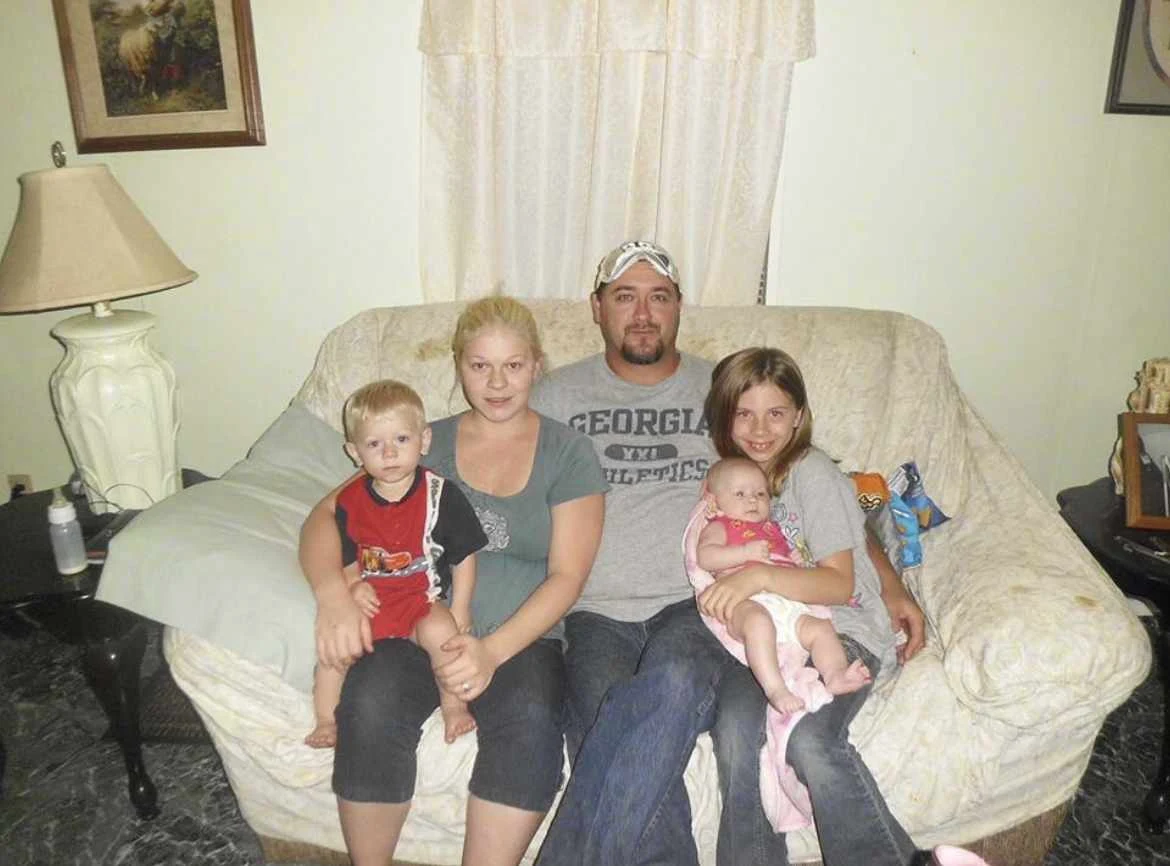























.webp?x=8)
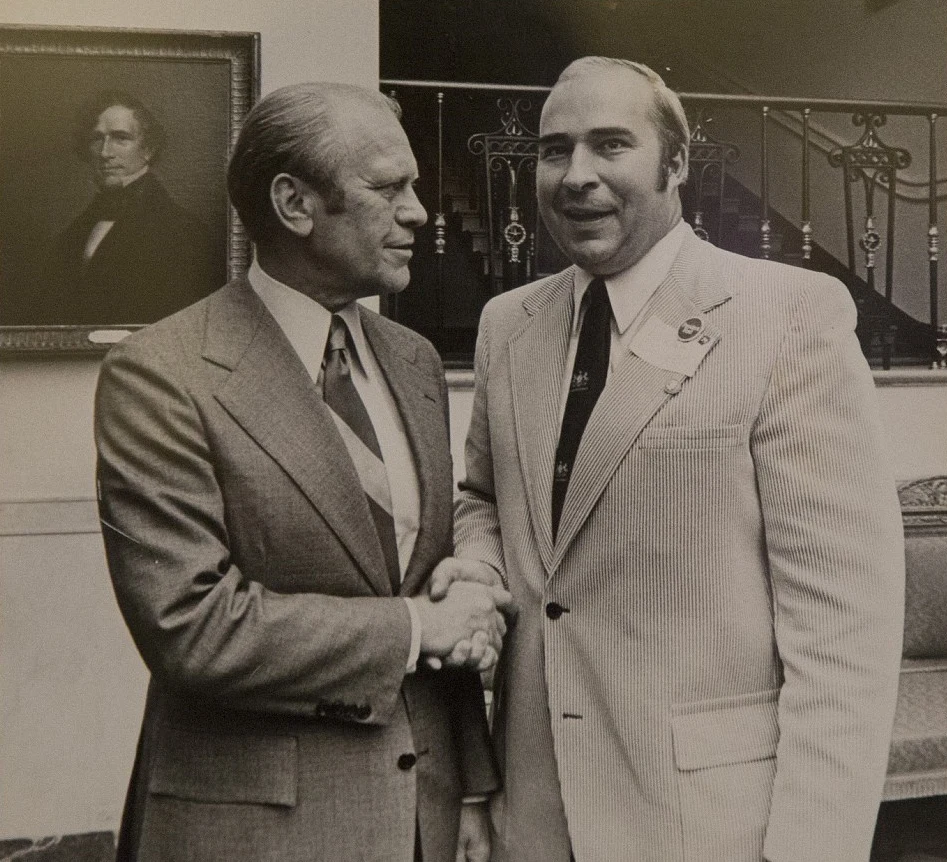

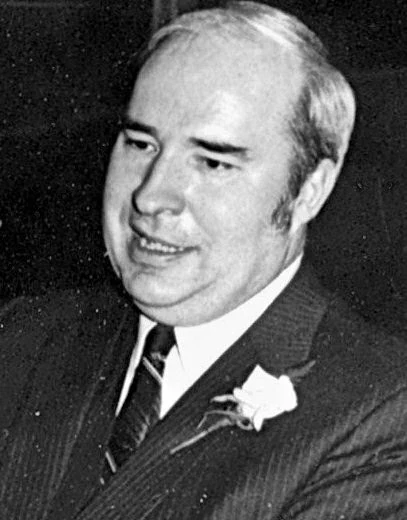
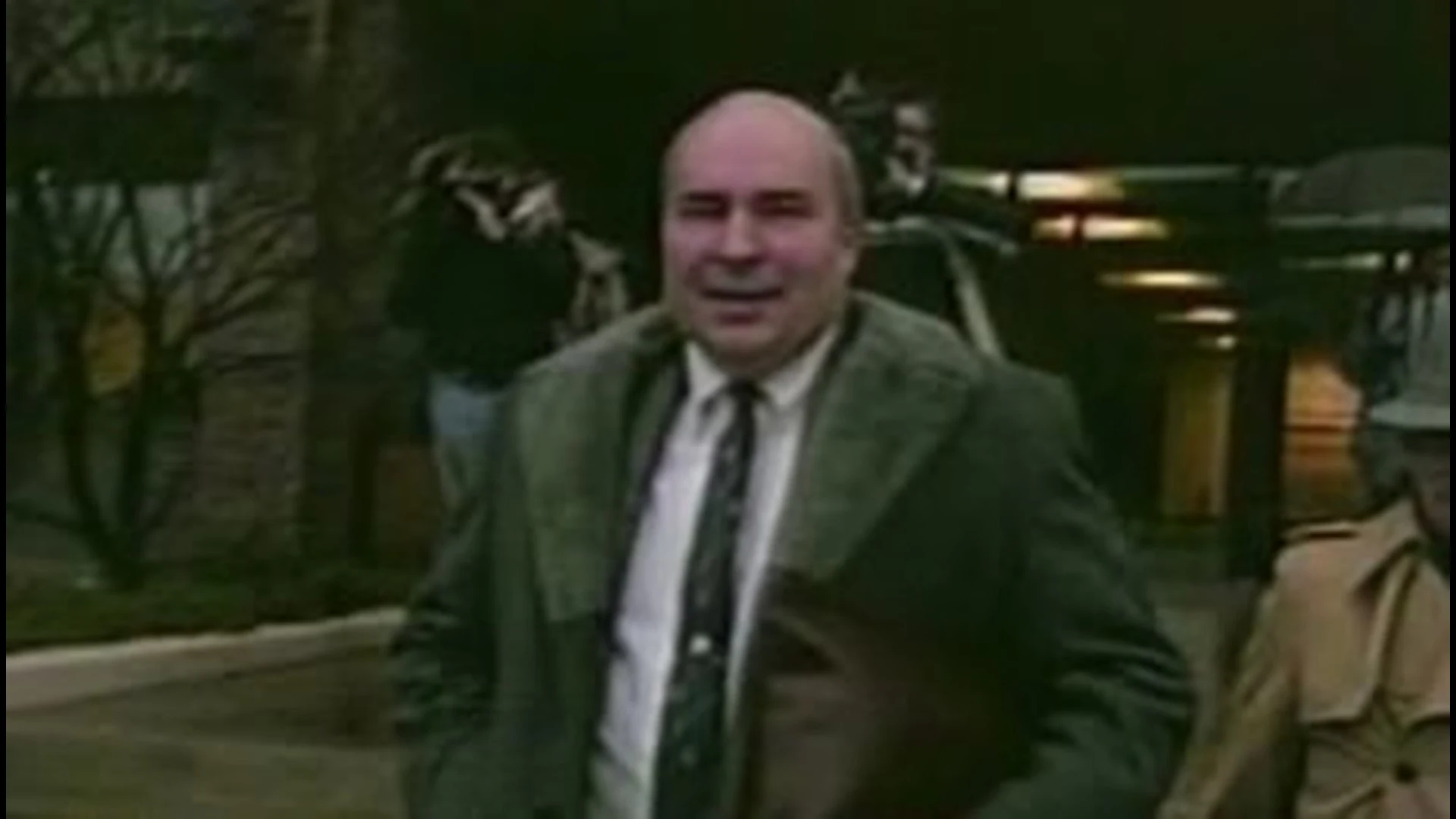
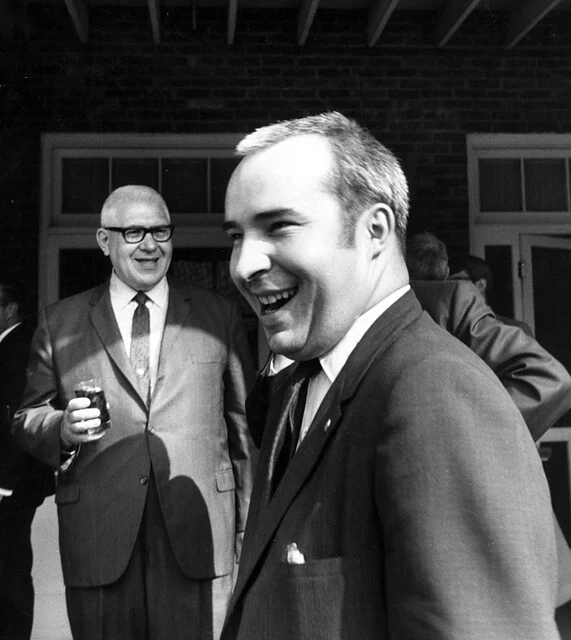
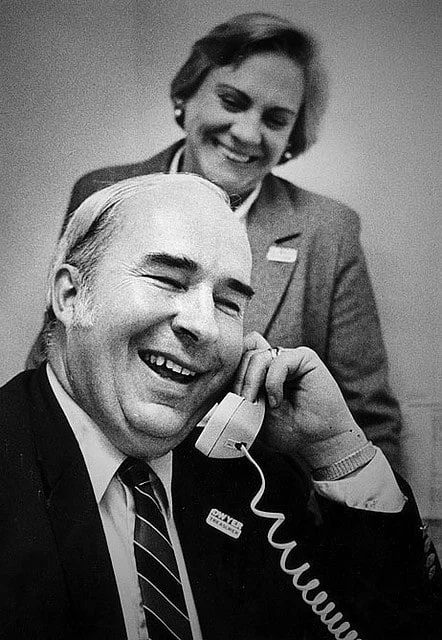
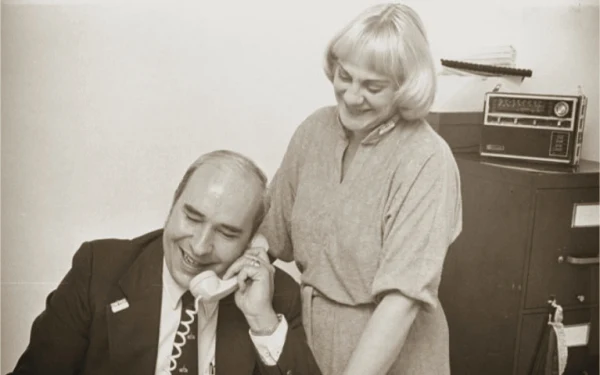
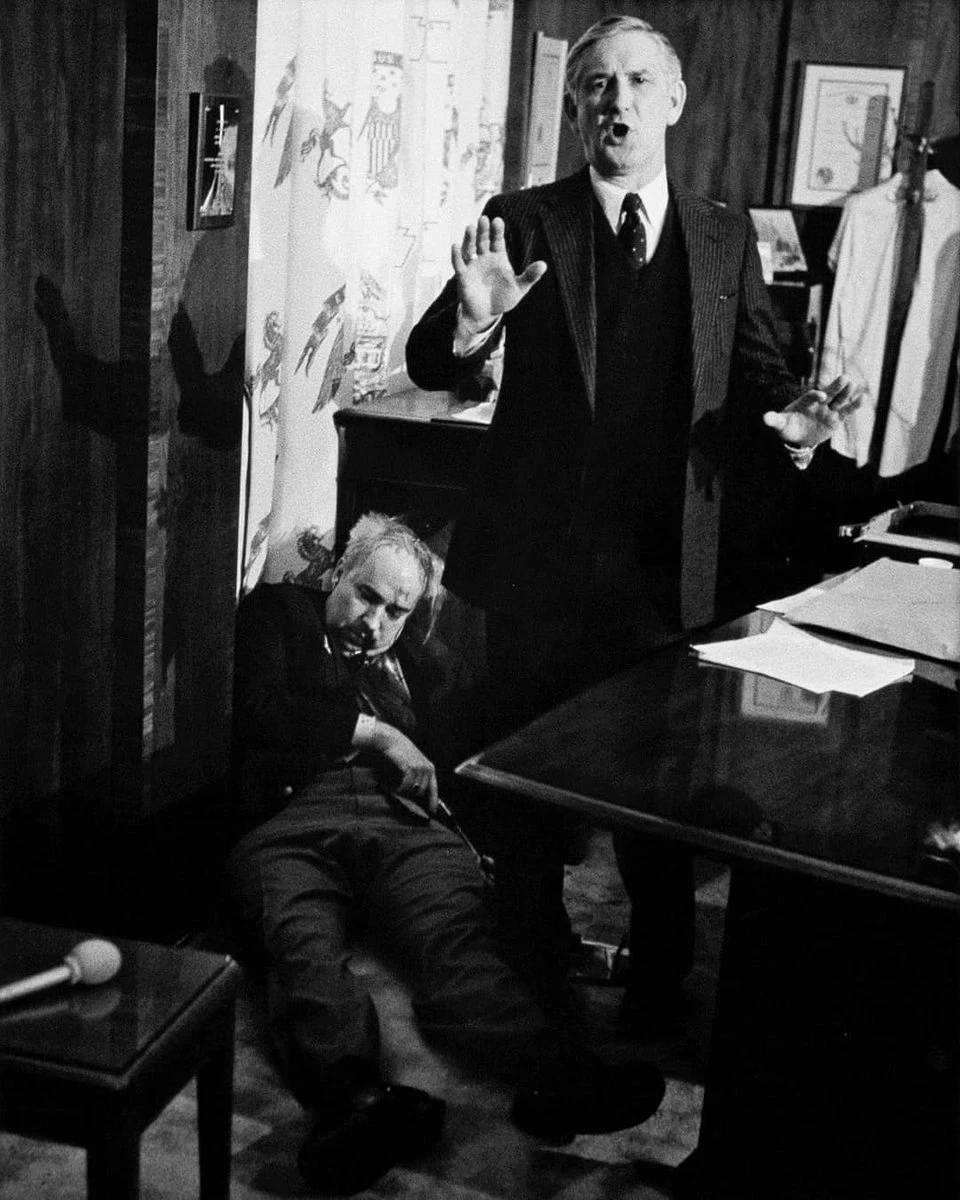

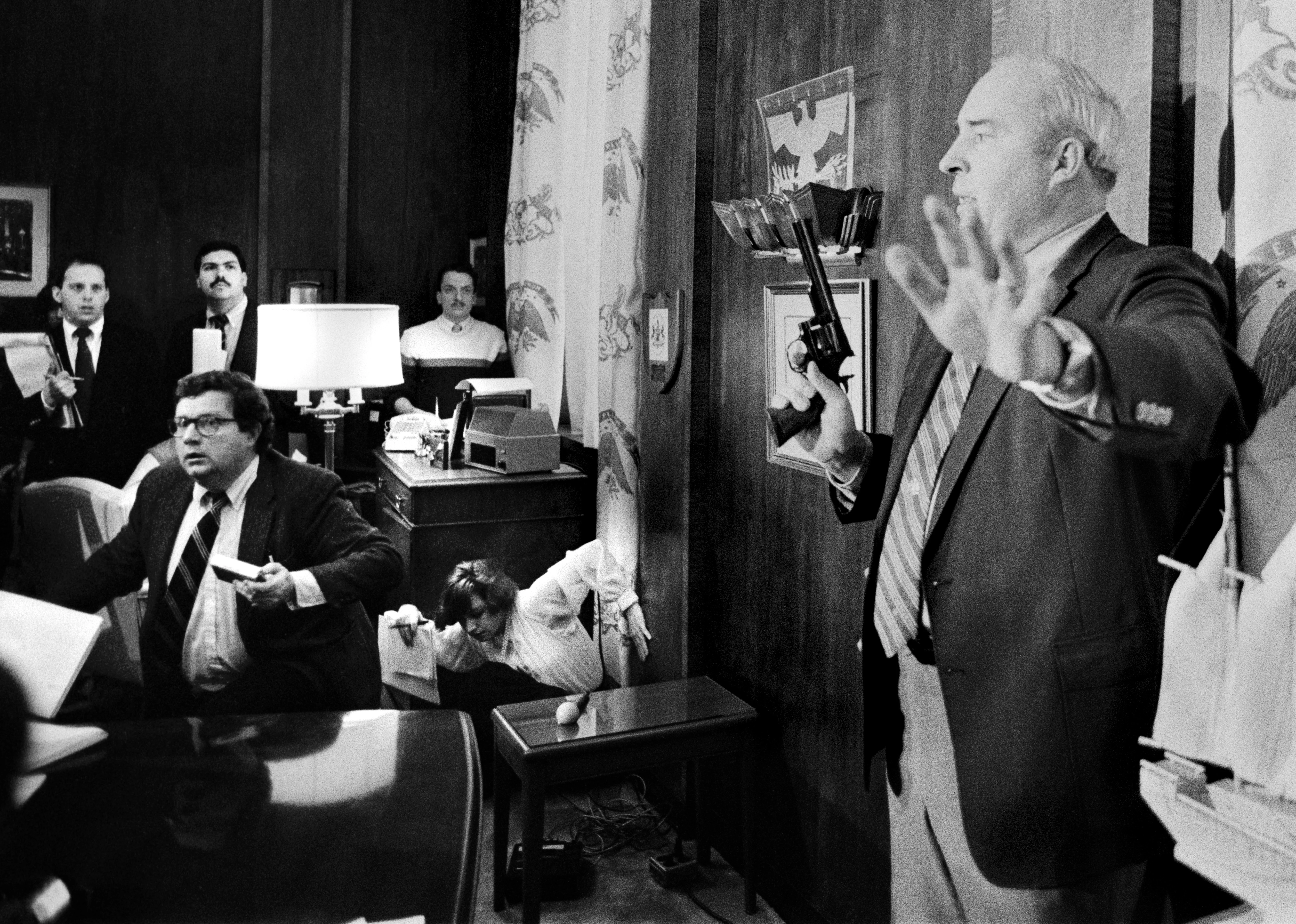
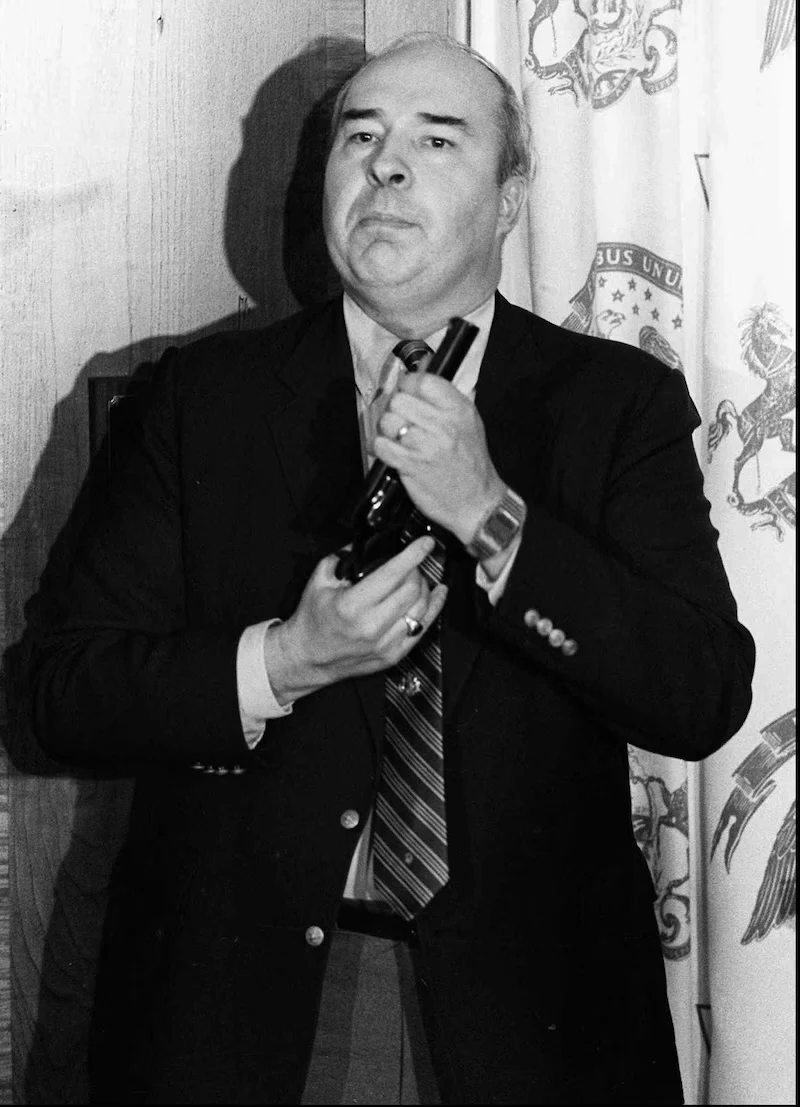
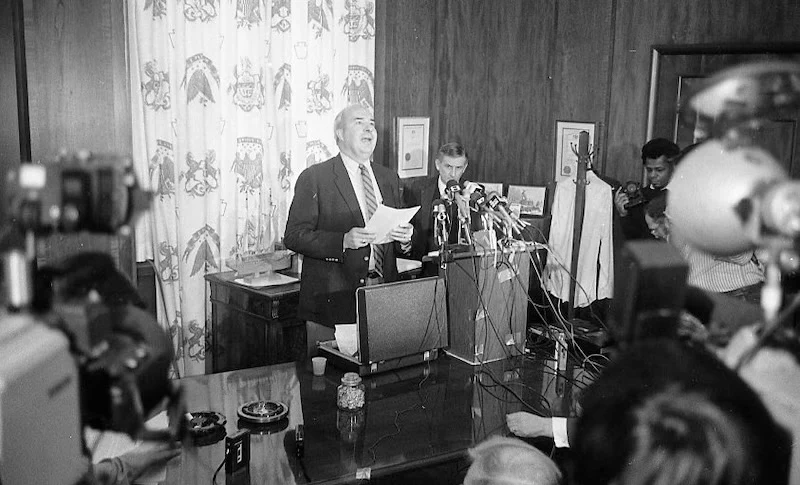
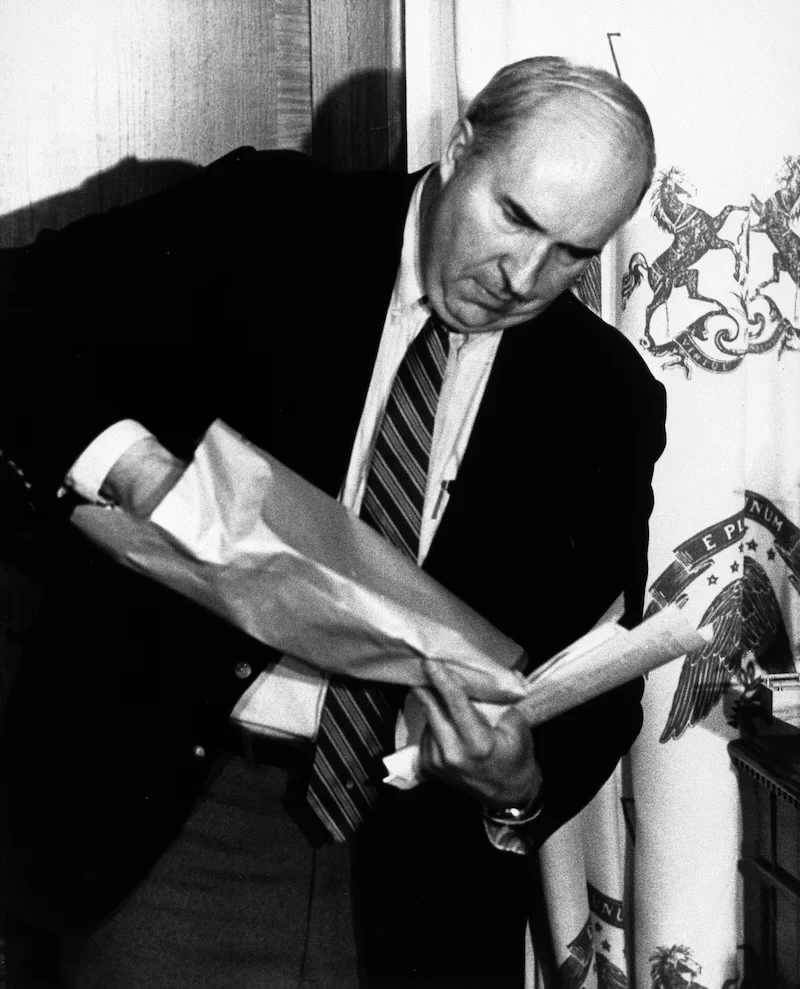
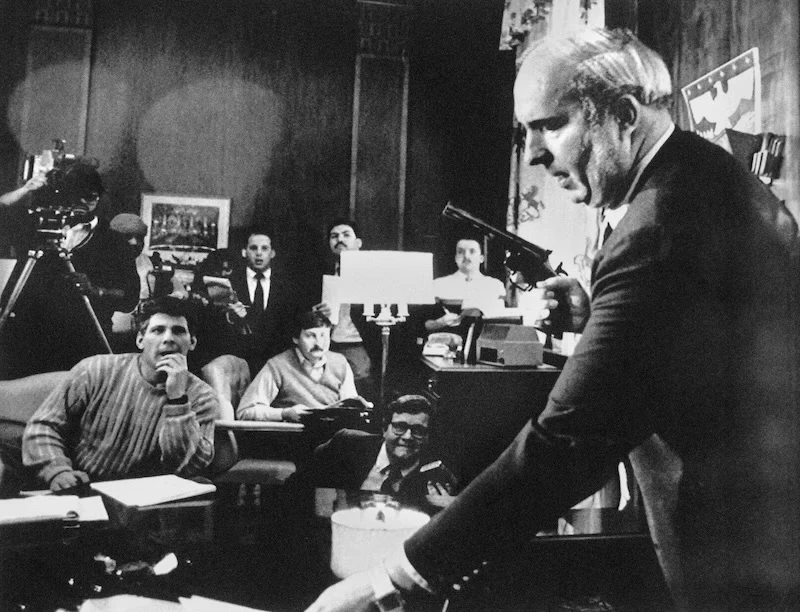
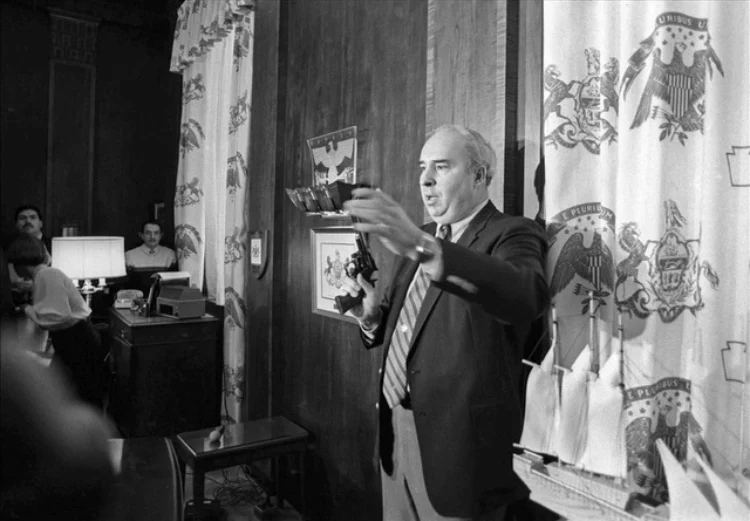
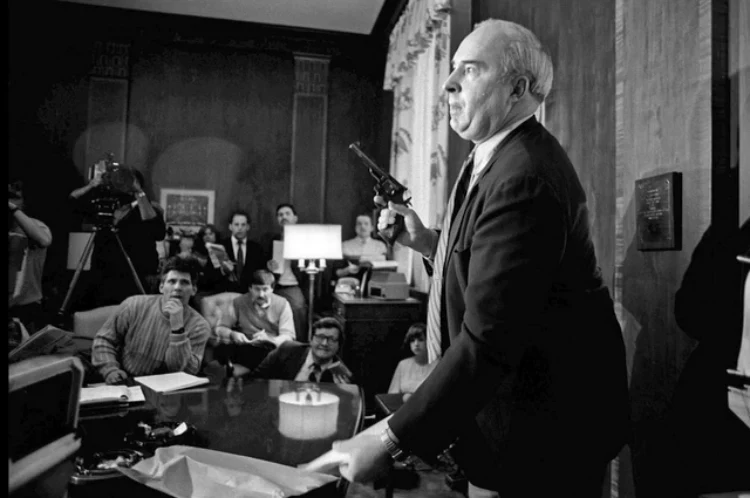
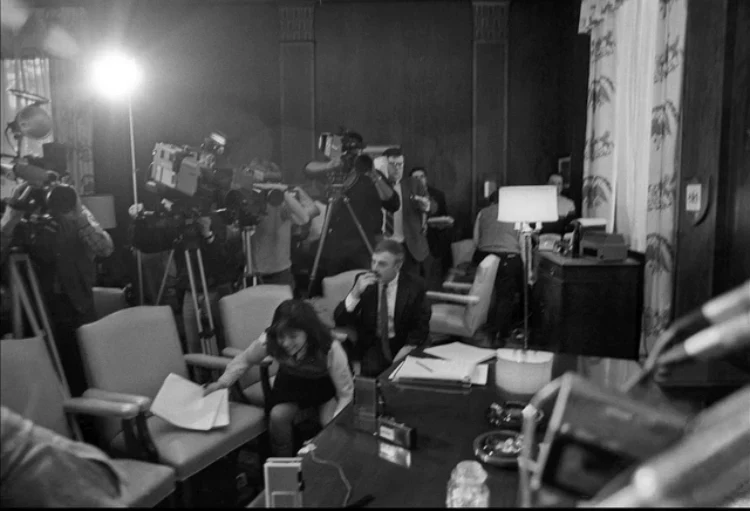
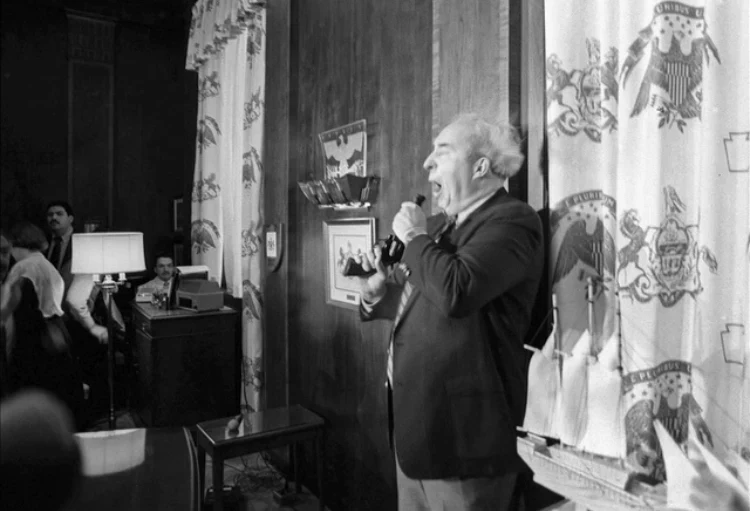



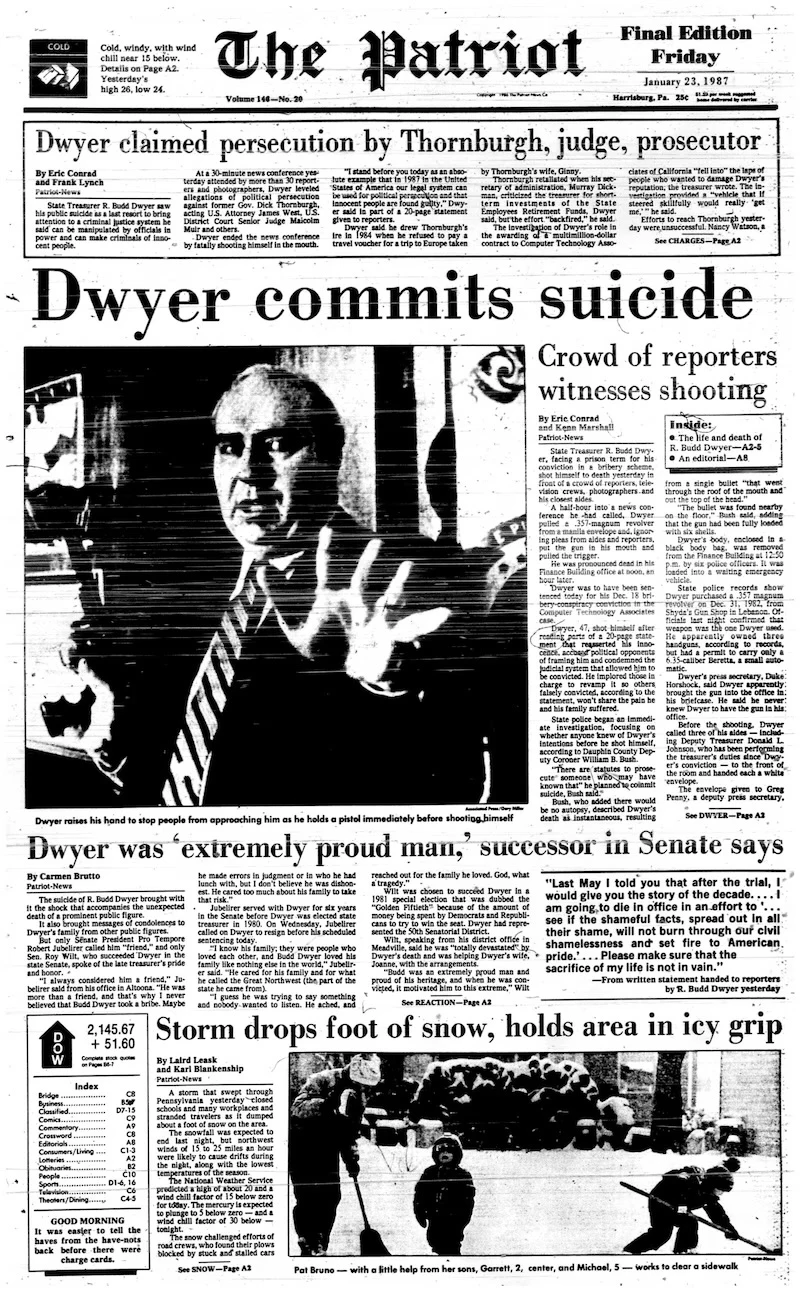
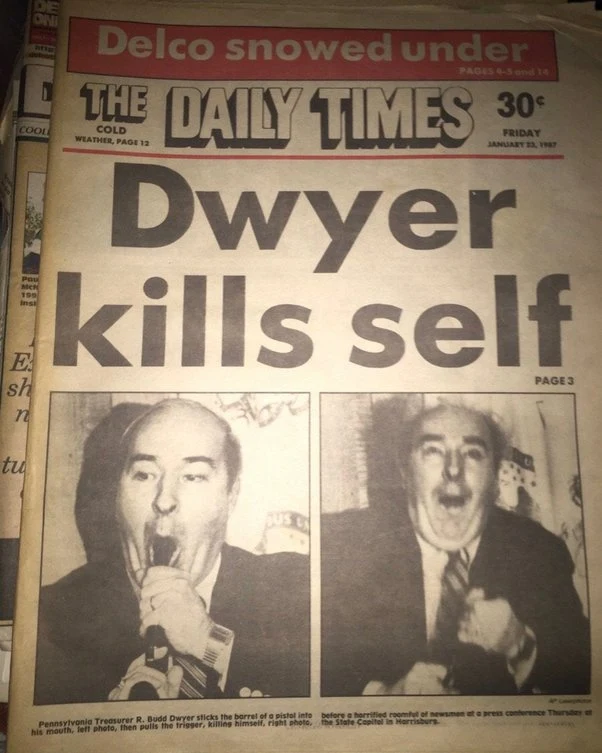
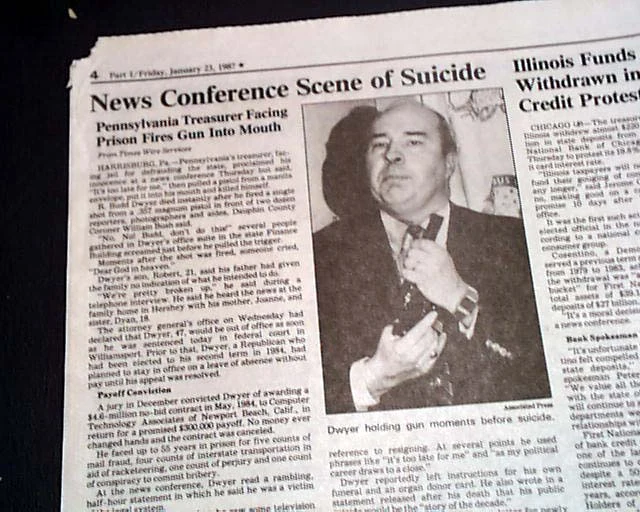
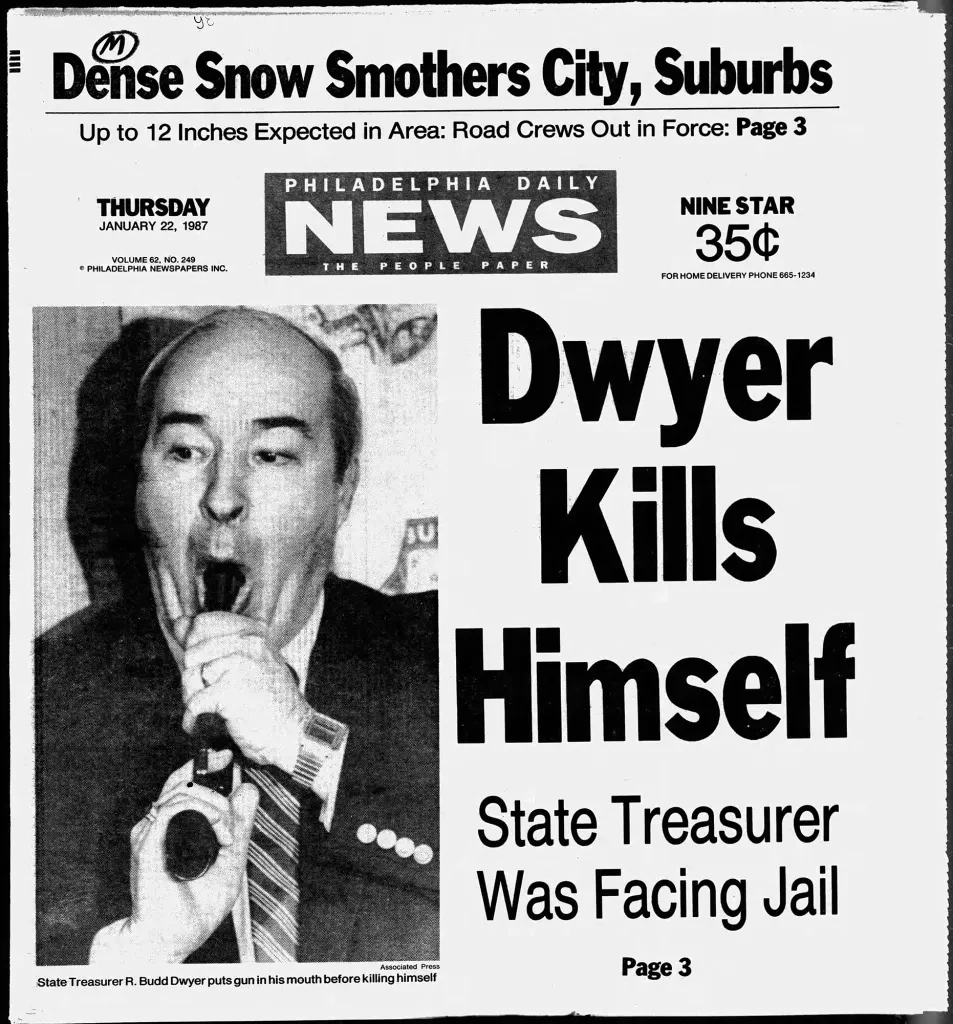
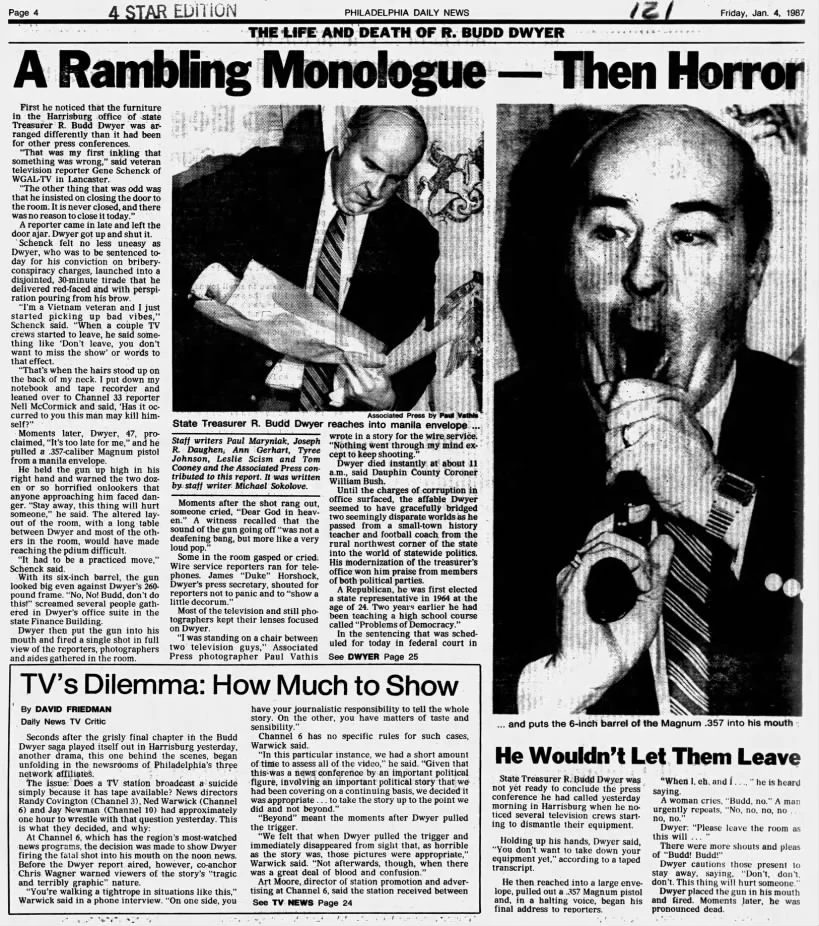
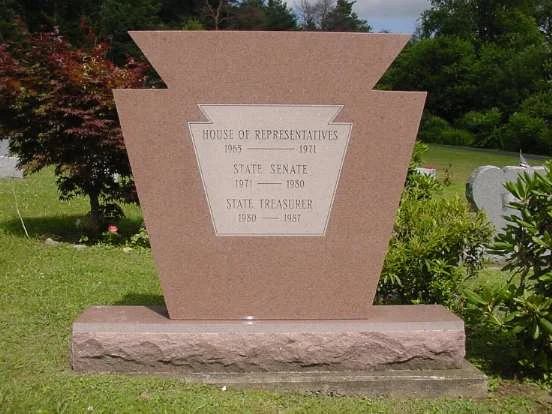
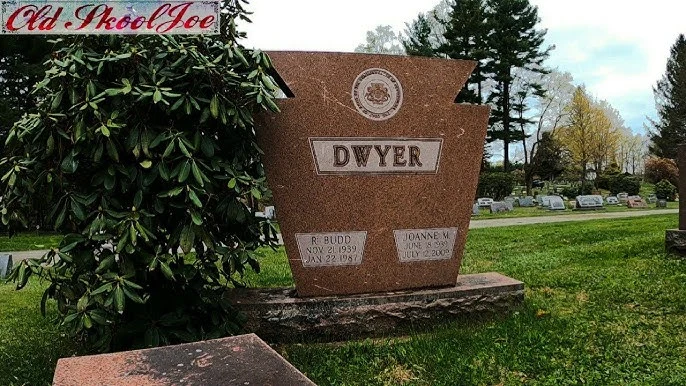







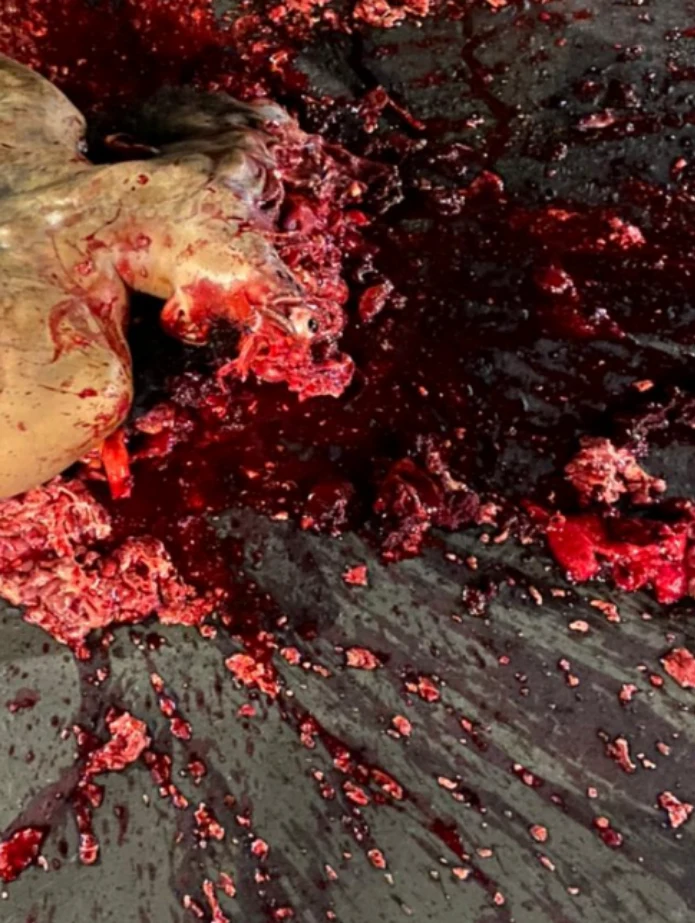







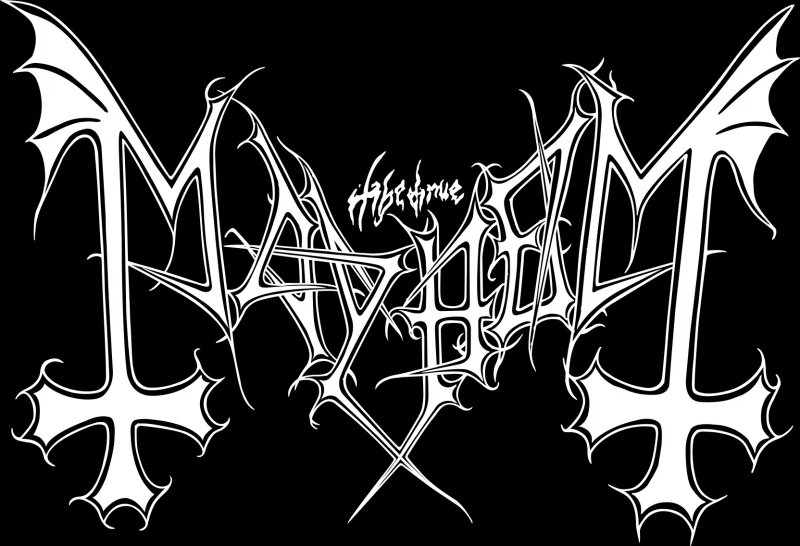




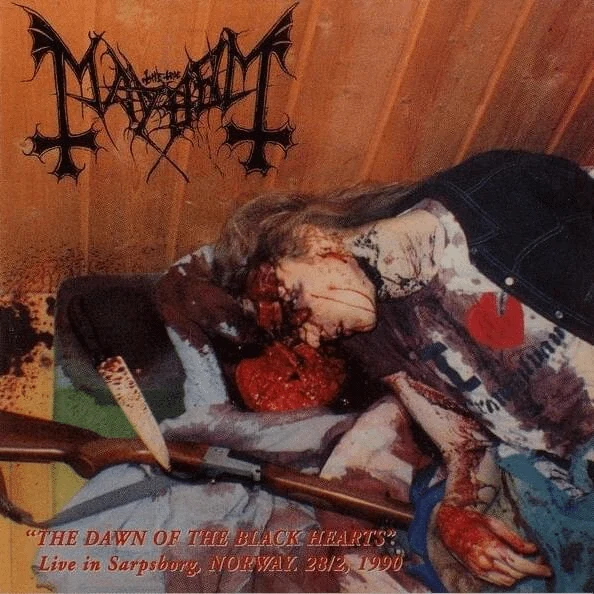

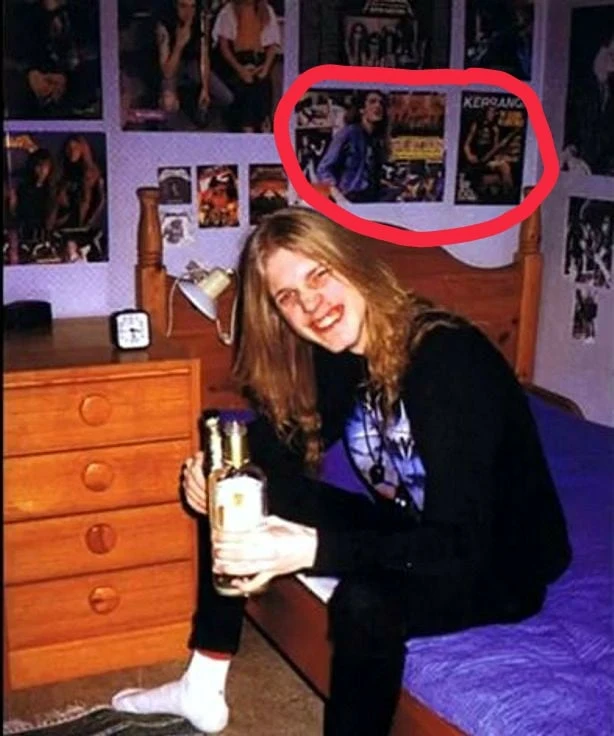




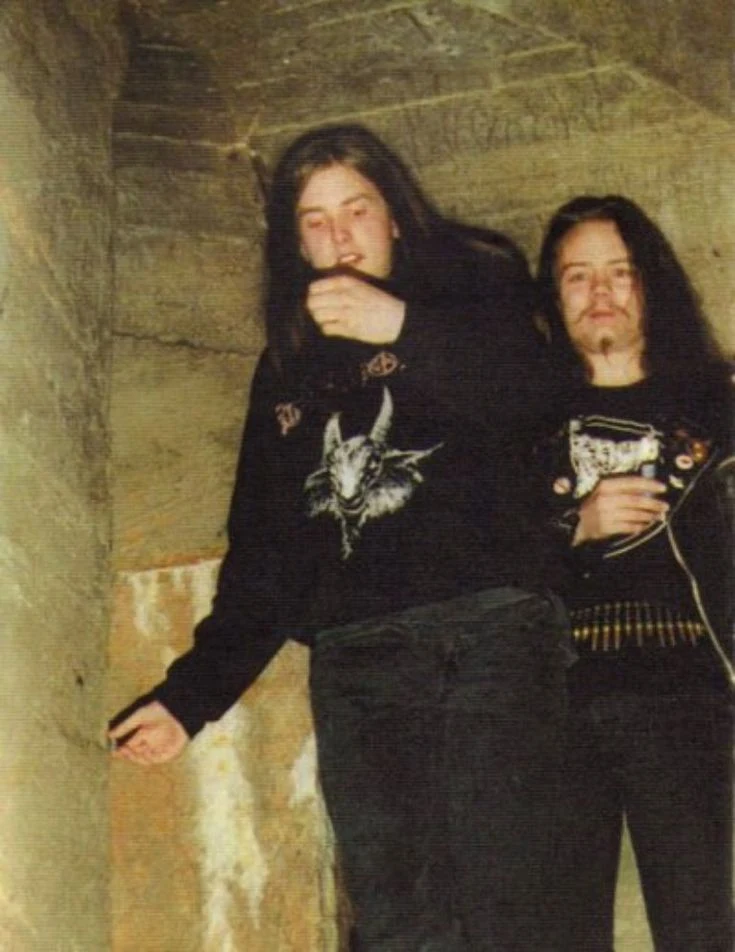

















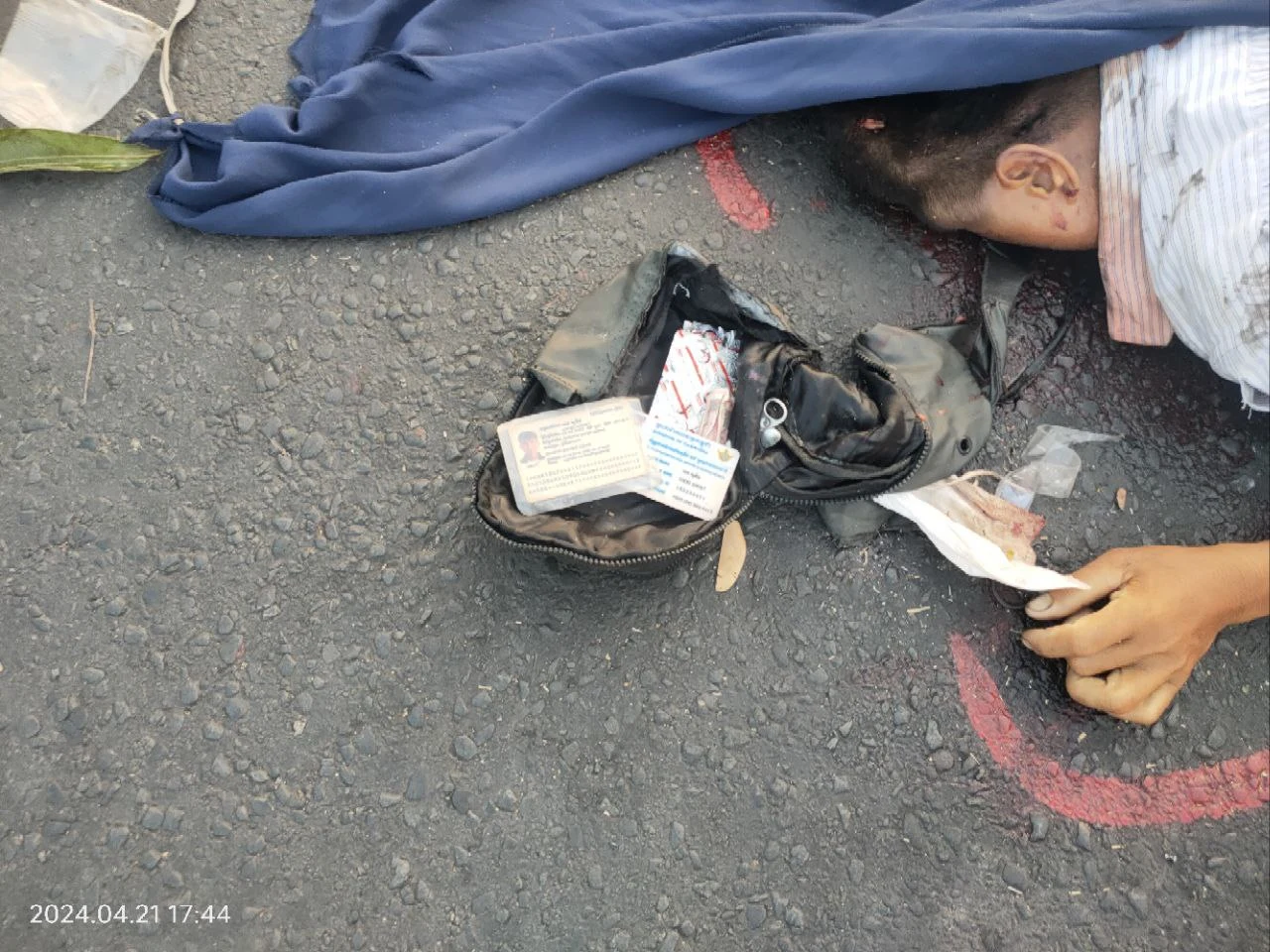































 Slavshit
Slavshit

 Sandshit
Sandshit
